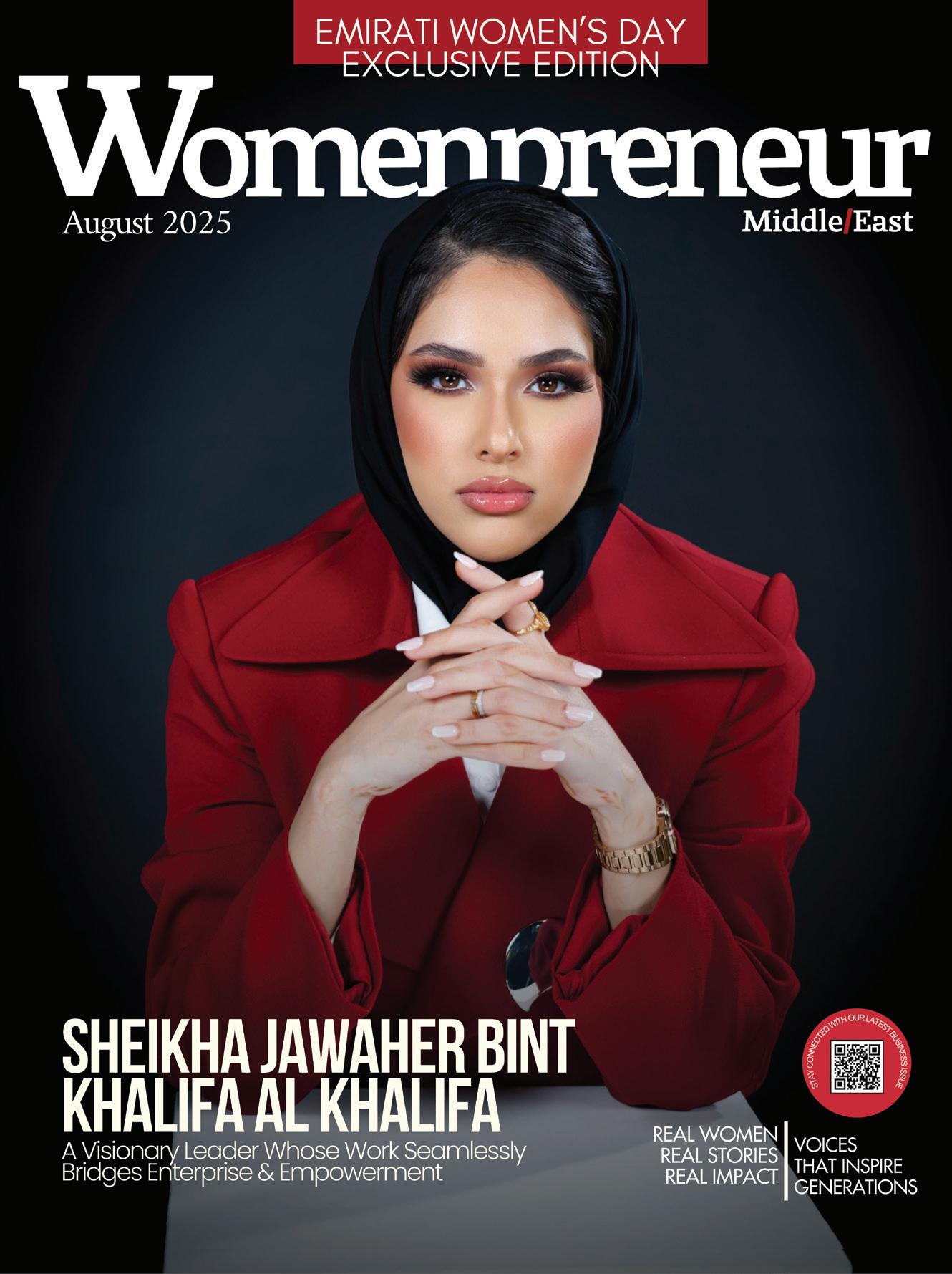

Celebrating 10th Emirati Women's Day




Celebrating 10th Emirati Women's Day

EMIRATI EDITION
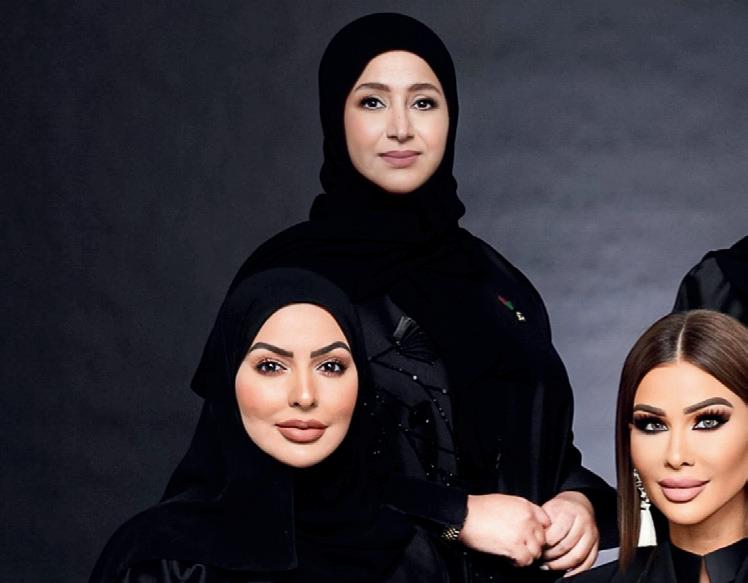



































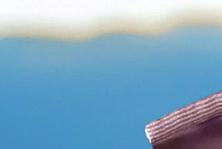





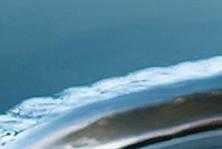

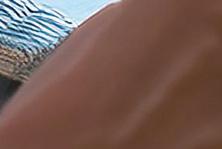




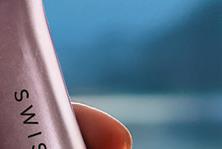


















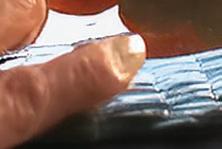






















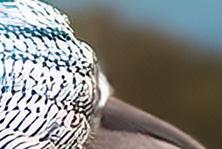





























































FOUNDER & CEO (Chief Executive Officer)
VIVEK MALIK
COO (Chief Operations Officer) DIVESH SINGH
CMO (Chief Marketing Officer) DEEPAK MALIK
Media Director NIDHI KUNDU
Creative Director SUMAYRA FAROOKI
Managing Editors
AMENI SHAFIK, BEENA YUSUF, ANASTASIA N, ROSARIO DE SOUSA, AFREEN SHEIKH, SOFIA IBRAHIM
Partnering Agencies
BIG DATA MARKETERS, REPUTIQUE PR, CEO MEDIA GROUPS, GLOBAL FAME VERIFIED WOMENPRENEUR MEDIA GROUP, SHAMS AL HAD
Design and Layout
Priya Darshini, Srivarsha Tejpal Singh
Publisher FIRSTREAD MEDIA LLC

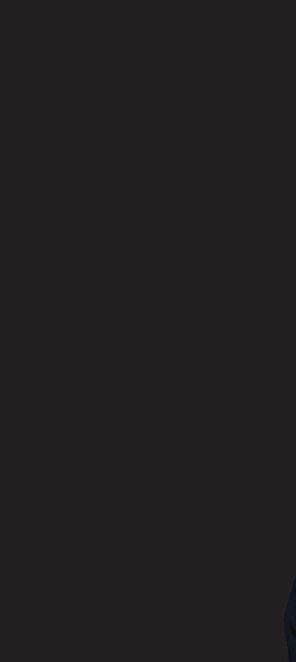


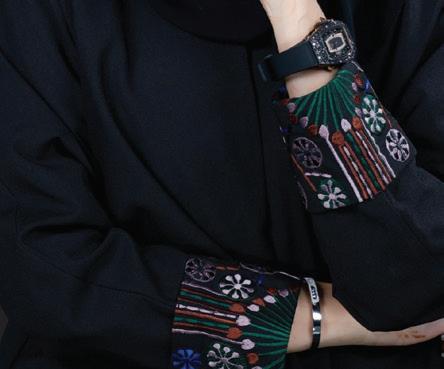



“Women’s empowerment is not a chapter in our journey — it is the foundation of our future.”
13 THE BRIEF
How women entrepreneurs are reshaping the Middle East’s business landscape
18 IN FOCUS
Mastercard research: 78% of women in EEMEA aspire to start their own business, signaling a strong entrepreneurial shift
23 EMIRATI SPECIAL
The First Emirati Women in History-Making Roles
25
First Female UAE Aircraft Engineer
26
First Emirati Women in Educational Leadership
27
First Emirati Aerospace Engineer
28
First
Exclusive Interviews
Womenpreneur of the Month
68 GALIYA KERIMKULOVA Building Futures, Empowering Voices
48 LEEN ABDELNOUR Crafting Stories Through Jewellery
49 NAILA RAHIM Redefining Luxury Through Light
50 KAYANE MAHREJIAN Building Legacies, Designing Futures
51 OKSANA SALAMATINA Curating a World Beyond Walls
52 MONA HUSAIN Redefining Everyday Luxury
53 ELISE BITAR Redefining Everyday Luxury with Joubijoux
We don’t just interview leaders to share their success — we do it to uncover the stories, lessons, and truths that inspire others to lead with authenticity and vision




































64 TABINDA SANPAL REDEFINING FINANCE WITH VISION, TRANSPARENCY, AND HEART
Finance is not just about numbers — it’s about building trust, shaping futures, and empowering growth with purpose
F56 HUAWEI CLOUD SECURES LEADERSHIP IN GARTNER’S MAGIC QUADRANT FOR CONTAINER MANAGEMENT
66 66 LAYLA AL-HAJJAJ LEADING WITH INTENTION, IMPACT, AND INTEGRITY
70 ELLEN MANNAERT USHERING IN THE ERA OF YOU
73 Womenpreneur at Work BREAKING DAWN: WOMEN AT WORK AND THE NEW ERA OF AMBITION
78 HAND IN HAND, WE CELEBRATE 50 YEARS MARKING THE 50TH ANNIVERSARY OF THE GENERAL WOMEN’S UNION AND 10TH OF EMIRATI WOMEN’S DAY
86 OMAN’S TOURISM BET HOW HERITAGE, HOSPITALITY, AND ENTREPRENEURSHIP COULD REDEFINE ITS FUTURE
The future of women entrepreneurs is not about breaking into spaces — it’s about creating new ones where innovation, equity, and impact thrive.
Firstread Media LLC, headquartered in Dubai under the Sharjah Media Authority, is a global media house redefining how stories of leadership, innovation, and entrepreneurship are told. With a portfolio that spans Womenpreneur Middle East, CEO Weekly UAE, Entrepreneurial Arabia, The Viralist, and Insider Al Seha, we create platforms that celebrate visionaries, empower changemakers, and spotlight industries shaping tomorrow. As publishers, our mission is simple: to inform, inspire, and influence. From exclusive interviews with global leaders to in-depth industry reports, our magazines and digital platforms bridge regions, industries, and ideas. We believe media is not just about reporting the present — it is about shaping the future. Firstread Media also curates high-impact events, summits, and awards that bring leaders and entrepreneurs together under one vision: growth with purpose.

Let us celebrate Emirati Women’s Day not only as a reflection of how far we have come but as a reminder of the future we are building—hand in hand, with courage, creativity, and commitment.

Vivek Malik Founder & CEO, Womenpreneur
As we mark the 10th Emirati Women’s Day, I am both humbled and inspired to present this special edition of Womenpreneur. This milestone is not just a celebration of a decade of recognition but a reflection of the remarkable journey Emirati women—and women across the Middle East— have taken in shaping industries, breaking barriers, and inspiring generations.
From the very beginning, Womenpreneur was founded with a singular vision: to create a platform where women’s stories, achievements, and voices are not only heard but celebrated and amplified. Today, as I look at the progress unfolding around us, I am proud to see how women entrepreneurs, leaders, innovators, and changemakers have redefined what it means to contribute to the region’s future.
The Middle East has undergone an extraordinary transformation in recent years. What was once seen as a landscape with limited opportunities for women has now become fertile ground for leadership, innovation, and entrepreneurship. The stories we highlight in this issue stand as proof.
From the first Emirati women in history-making roles— flying aircraft, captaining ships, innovating in science and health, and shaping global industries—to the new wave of entrepreneurs determined to chart their own paths, the momentum is undeniable.
A study by Mastercard revealed that 78% of women in the EEMEA region aspire to start their own businesses. This number is not just a statistic; it is a testament to the deep shift happening in our societies. Yet, alongside this aspiration, two barriers remain constant: access to mentorship and access to funding. Without guidance and resources, too many dreams remain ideas rather than enterprises.
It is with this in mind that I am proud to announce the launch of SheFounderHub, a new initiative by Womenpreneur that officially begins today, on the 10th Emirati Women’s Day. SheFounderHub will serve as a platform where women can connect with experienced mentors and access pathways to funding. By directly addressing these two critical barriers, our goal is to help aspiring women founders transform ambition into action, and ideas into thriving businesses.
As we reflect on this year’s theme—celebrating milestones and progress—I am reminded that empower-
ment is not a destination, but a continuous journey. Each barrier broken and each milestone achieved creates a ripple effect for the next generation. Our role at Womenpreneur is to spotlight these stories, provide platforms for collaboration, and nurture ecosystems where women-led enterprises can thrive.
This edition brings together profiles of extraordinary Emirati women who have paved the way as the “firsts” in their industries, as well as global and regional voices shaping business, health, tech, fashion, and creative industries. Their journeys are diverse, but their message is unified: progress is possible when vision meets action.
To our readers, partners, and contributors: thank you for being part of this journey. Whether you are a woman entrepreneur building your first startup, an established leader mentoring the next generation, or a supporter championing women’s inclusion—you are all part of this movement. As we look ahead, Womenpreneur will continue to expand its mission across the Middle East, India, and beyond, driving forward initiatives that empower women, foster mentorship, and connect businesses to opportunities. The decade ahead holds promise, and together we will shape it.

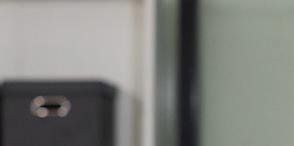
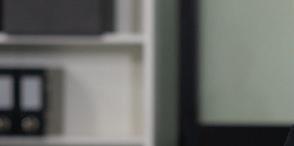

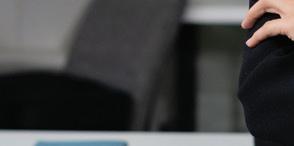


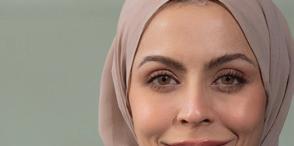













How
entrepreneurs are reshaping the Middle East’s
“We saw the untapped potential in engaging an idle talent pool that represents half of our society. Enabling them to earn and spend within the country is not just empowering—it’s economically smart,” noted prominent Middle Eastern businesswoman Lubna Olayan.
graduates.
This figure significantly outpaces, for example, the US, where only 20% of engineering students are reportedly female. Such an exceptional talent pipeline represents enormous untapped potential for economic growth and innovation.
“What distinguishes many women-led ventures in the region is their nuanced understanding of local market dynamics.”
The Middle East and North Africa (MENA) is witnessing a remarkable economic transformation, one increasingly powered by an untapped yet formidable resource: its women entrepreneurs. Across Dubai, Riyadh, Cairo, and beyond, female founders are launching innovative ventures that are not only succeeding commercially but also fundamentally reshaping the region’s business landscape.
Their rise represents one of the most promising developments in the region’s economic diversification efforts – a quiet revolution with implications far beyond mere statistics.
From e-commerce platforms transforming how families shop to fintech solutions providing increased access to financial services, women-led startups are addressing critical market needs while simultaneously breaking long-standing
cultural barriers. These pioneering entrepreneurs are creating new economic frameworks, employment opportunities and societal shifts that could ultimately contribute trillions to the region’s gross domestic product.
This recognition of women’s economic potential comes at a much-needed time. Women-led startups receive just 1.2% of venture capital in MENA – not much less than the global figure of 2%. This funding gap persists despite compelling evidence that gender-diverse founding teams consistently deliver more substantial returns on investment.
What’s interesting about the MENA case is the stark contrast between education and entrepreneurship. In some countries – Iran, Oman, Saudi Arabia – women comprise over 50% of STEM (science, technology, engineering, mathematics)
• 1.2% of venture capital in MENA
Leading regional governments and institutions have recognized this opportunity and are implementing tangible support structures. Initiatives such as Saudi Arabia’s Vision 2030 and the United Arab Emirates’ (UAE) National Strategy for Empowerment of Emirati Women are creating policy frameworks specifically designed to increase female participation in the private sector and entrepreneurial activities.
These aren’t merely symbolic gestures but strategic economic imperatives as Gulf nations accelerate their post-oil diversification efforts. This supportive ecosystem is yielding impressive results, with pioneering women creating ventures across diverse sectors.
Mona Ataya’s Mumzworld is a prime example of this success. Her e-commerce platform, serving 2.5 million mothers across the Gulf, has revolutionized the way families access childcare products
and information. “Every day is a balancing act – it’s a personal choice,” Ataya said in an interview with The National, capturing the determination that characterizes many female founders balancing multiple responsibilities while building market-defining companies.
The healthcare sector has seen equally impressive innovation from women entrepreneurs. Iman Abuzeid, who grew up in Saudi Arabia before attending Wharton, founded Incredible Health – a staffing platform that achieved unicorn status with a $1.65 billion valuation.
With over $80 million raised from investors, her company played a critical role during the pandemic’s healthcare staffing crisis, demonstrating how women-led ventures can address urgent global challenges.
In sustainability and agriculture – areas of particular strategic importance to the region – Dr Derya Baran’s RedSea Technologies is making remarkable progress.
• Iran, Oman, Saudi Arabia – women comprise over 50% of STEM (science, technology, engineering, mathematics) graduates.
• The US, where only 20% of engineering students are reportedly female.
Founded in 2018, after her research at King Abdullah University of Science and Technology, the company has developed agricultural technology that reportedly reduces water and energy usage by 90% compared to conventional methods.
With almost $37 million in funding secured, including from Saudi Arabia’s sovereign wealth fund, RedSea exemplifies how women-led innovation can tackle the region’s most pressing environmental challenges.
The financial technology sector is also being transformed by female founders like Nuha Hashem, whose neobank, Zywa, targets the region’s digitally native younger generation. By focusing on financial literacy and inclusion, these entrepreneurs are addressing critical gaps in traditional banking services while opening new markets.
These success stories are being increasingly amplified by a growing support ecosystem specifically designed for women entrepreneurs. Across the region, specialized accelerators, investment funds and mentorship programmes are providing the targeted resources female founders need to succeed.
Visa’s “She’s Next” initiative exemplifies this approach, offering grants ranging from $10,000 to $50,000, along with access to an exclusive network, including leaders from major regional financial institutions such as First Abu Dhabi Bank, National Bank of Kuwait, and Bank Muscat.
The programme’s structure recognizes that beyond capital, network access remains crucial for entrepreneurial success. Even Saudi Arabia, historically the
region’s most gender-conservative market, is making remarkable strides. At the LEAP 2024 conference in Riyadh this February, the Kingdom’s Ministry of Communications and Information.
Technology unveiled its comprehensive “Women in Tech” programme, providing substantial resources to female-led startups in strategic sectors.
These women aren’t just building companies –they’re reshaping economies.
The institutional infrastructure continues to evolve rapidly. The Dubai International Financial Centre, in partnership with Standard Chartered, operates a dedicated accelerator for women-led fintech ventures.
Meanwhile, the UAE’s national gender balance council has successfully advocated for legislative reform, which mandates equal pay for men and women. It follows reforms in other Gulf countries looking at anti-gender discrimination. This creates as well a more equitable foundation for female economic participation.
The health sector has seen similar targeted initiatives, with global pharmaceutical firm Organon partnering with regional venture capital firm Flat6Labs to launch the Women’s Health Accelerator Programme in 2023.
This accelerator specifically supports femtech startups developing digital solutions for women’s health across MENA and Turkey, addressing critical needs while
creating new market opportunities.
Despite significant progress, reliable data collection remains challenging. According to MAGNiTT, startups with at least one female founder represent approximately 24% of funded ventures in the region since 2018. However, in early 2023, they closed just 23 deals, compared to 90 for all-male teams, which accounted for about 20% of the total deal flow. Better measurement frameworks would help direct resources more effectively toward closing these persistent gaps.
The economic case for supporting women entrepreneurs extends far beyond equity arguments. In a 2022 report, State Street Global Advisors said that closing the gender inequality gap for entrepreneurs in the MENA region could generate $2.7 trillion by 2025. These are numbers that no growth-focused economy can afford to ignore.
$2.7
trillion by 2025 — that’s the potential gain from closing the gender gap for MENA women entrepreneurs, according to a 2022 State Street Global Advisors report — a figure no growth-focused economy can ignore.
What distinguishes many women-led ventures in the region is their nuanced understanding of local market dynamics. Female founders often bring cultural insights that create competitive advantages, particularly in sectors such as healthcare, education and financial services, where family considerations heavily influence purchasing decisions.
These women aren’t just building companies – they’re reshaping economies. Their success signals a new era in which innovation and talent, rather than gender, define the future of the Middle East.
The narrative of women entrepreneurs in the Middle East is no longer one of exception; it is becoming one of expectation. As the region undergoes profound transformation, women are seizing the opportunity to redefine industries, influence policy, and rewrite long-standing cultural narratives. Their ventures are not isolated success stories but signposts of a larger structural shift — one that blends ambition, resilience, and innovation with deeply local insights.
For decades, one of the dominant conversations around women in the region revolved around barriers — legal, social, financial. Yet, the last 10 years have seen an accelerating transition from barriers to bridges. Governments, institutions, and investors now increasingly view women’s entrepreneurship not as a social experiment but as a strategic imperative.
Take the UAE, for example. Today, nearly 50% of small and medium enterprises in the country are owned
or managed by women, contributing billions annually to the economy. In Saudi Arabia, women’s participation in the workforce has almost doubled in just a few years, climbing from 19% in 2016 to over 36% by 2023. Behind these numbers lies a growing awareness that sustainable economic diversification cannot happen without fully tapping into women’s talent.
And it is not just governments. Private investors are shifting as well. Family offices, traditionally conservative in their investment approaches, are beginning to see women-led ventures as smart bets, particularly in high-growth sectors like e-commerce, fintech, sustainability, and healthtech.
Beyond the Numbers:
Redefining Leadership What makes the rise of women entrepreneurs in the Middle East distinct is not merely their increasing visibility, but their style of leadership. Female founders often emphasize collaboration over competition, sustainability over short-term gain, and social impact alongside profitability. This blended value proposition resonates strongly in a region where markets are young, populations are dynamic, and consumers are increasingly conscious of et hical choices.
Consider the leadership approach of Reem Khouri, founder of Kaamen, a platform that helps startups and corporations build social impact into their business models. Her philosophy underscores a growing mindset: that entrepreneurship in the Middle East must create not only wealth, but also purpose.
This dual focus is particularly critical in a region navigating rapid modernization. By anchoring innovation in community needs, women
entrepreneurs are proving that profitability and impact can grow hand in hand. Tech as the Great Equalizer Technology has emerged as perhaps the single most powerful driver of this transformation. For many women, digital platforms are not just tools but liberators, allowing them to bypass traditional barriers such as restrictive office environments or unequal access to capital networks.
Social commerce platforms, for example, have enabled thousands of women across Egypt, Jordan, and Morocco to launch micro-businesses from their homes. Fintech startups led by women are addressing gaps in financial literacy and access, particularly for young people and unbanked communities. Healthtech and femtech ventures are providing culturally sensitive solutions in areas previously overlooked, from fertility support to menstrual health tracking. In each of these cases, women are not just participating in the tech revolution — they are shaping its trajectory. The region’s next unicorn may very well come from a female founder leveraging AI, blockchain, or biotech to solve a uniquely Middle Eastern challenge.
The success of women entrepreneurs is also being accelerated by the rise of dedicated ecosystems of support. Networks like the Dubai Business Women Council, Womena, and SheWins Arabia are offering mentorship, pitch platforms, and access to global investors. Regional universities are incubating women-led startups, while multinationals are running accelerator programs targeted specifically at female founders.
These ecosystems do more than provide capital; they normalize ambition. When
young women see role models who look like them — leading boardrooms, scaling startups, raising millions in funding — it changes the psychology of what is possible. The “role model effect” is perhaps one of the most profound multipliers of women’s entrepreneurship in the Middle East today.
Still, challenges remain. Cultural expectations, while evolving, can still weigh heavily on female founders, particularly in more traditional markets. Access to growth-stage funding remains limited, with most women-led ventures clustered in early-stage rounds. Additionally, a lack of gender diversity in senior venture capital decision-making roles often perpetuates the funding gap.
Yet, the resilience of women entrepreneurs is perhaps their most defining characteristic. Many continue to navigate dual roles as business leaders and primary caregivers, managing households while scaling companies. This balancing act, far from being a limitation, often fuels a capacity for adaptability, problem-solving, and empathy-driven leadership.
The Generational Shift
What makes the current wave of women entrepreneurs particularly compelling is the generational dimension. Generation Z and millennials across the Middle East are driving a cultural shift that prizes inclusivity, diversity, and innovation. For young women entering the workforce, entrepreneurship is not simply an alternative career path — it is often the first choice.
These women are digital natives, fluent in global cultures, and unafraid to challenge outdated norms. They are starting businesses earlier, scaling faster, and
demanding that policies and markets adapt to their realities. This generational confidence is reshaping the perception of women in business from novelty to necessity.
Sectors of Transformation
Across industries, women entrepreneurs are driving waves of change:
Education Technology (EdTech): Female founders are creating platforms to bridge gaps in access, particularly for underserved rural communities and girls.
Sustainability: Women-led ventures in clean energy, waste management, and sustainable agriculture are directly aligning with national visions for climate resilience. Luxury & Lifestyle: From fashion houses to wellness brands, women entrepreneurs are defining the aesthetics of modern Middle Eastern identity, exporting culture globally.
Healthcare: Beyond Incredible Health and RedSea, dozens of smaller startups are tackling everything from mental health to personalized nutrition, often with a distinctly female perspective. The diversity of these sectors demonstrates that women are not confined to niche markets; they are reshaping mainstream industries.
The Road Ahead
The next decade may well be defined by how effectively the region integrates women into its economic fabric. Projections suggest that closing the gender gap in entrepreneurship could add trillions to MENA’s GDP. Yet, beyond economics, there is a deeper narrative at play: one of identity, representation, and legacy.
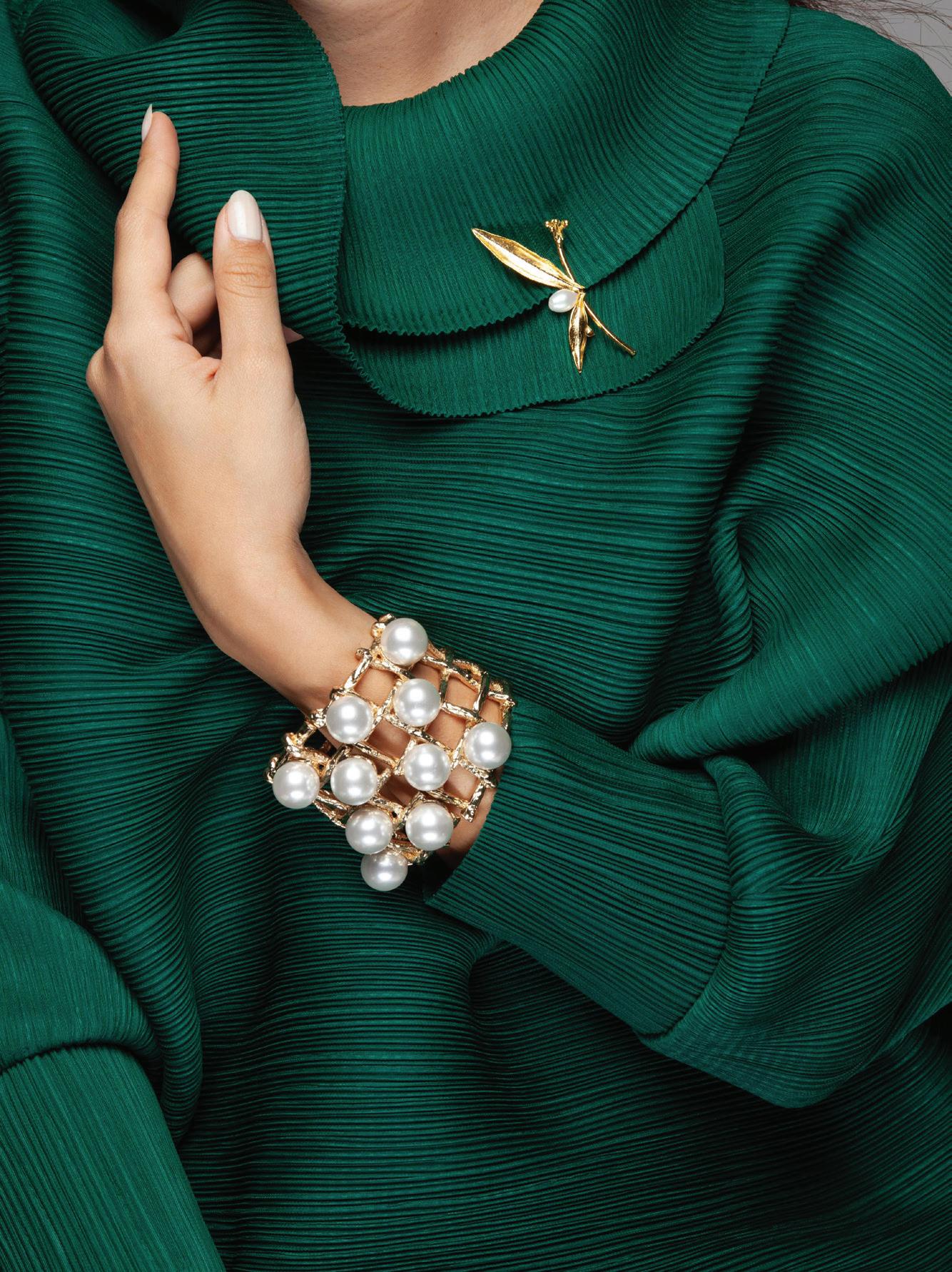

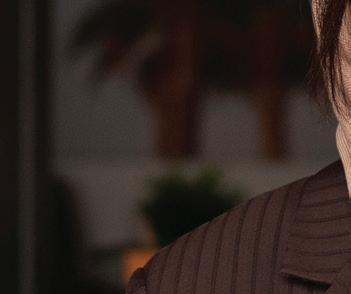






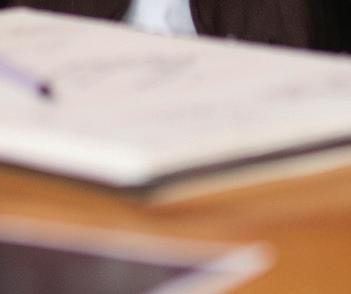




In Focus
Mastercard research: 78% of women in EEMEA aspire to start their own business, signaling a strong entrepreneurial shift
New study highlights the increasing ambition of women entrepreneurs across Eastern Europe, Middle East, and Africa, with growing opportunities for business growth. 89% of female Gen Z would like to start their own business in the future. More than half of women in the region currently have a side hustle to earn more money and gain financial independence

Women across Eastern Europe, the Middle East and Africa (EEMEA) are demonstrating a growing appetite for entrepreneurship, with 78% who considered starting or running their own business, according to Mastercard’s latest research released ahead of International Women’s Day 2025. This strong ambition is reinforced by positive business sentiment, with 89% of women entrepreneurs in the region expecting their revenue to grow over the next five years.
The research also reveals that entrepreneurship is gaining momentum among younger generations, with 89% of female Gen Z in the EEMEA region expressing a strong interest in starting their own business, exceeding global averages.
“The entrepreneurial spirit among women in EEMEA is strong and growing, with younger generations leading the way. With access to the right financial tools, mentorship, and digital resources, women entrepreneurs can unlock new business opportunities, drive innovation, and contribute significantly to economic development. At Mastercard, we are committed to navigating barriers and fostering an ecosystem where women-led businesses can thrive,” said Selin Bahadirli, executive vice president, Services, Eastern Europe, Middle East and Africa, Mastercard.
Global connectivity, linking women entrepreneurs in EEMEA to international markets and investors.
of the report: Women in EEMEA: A thriving entrepreneurial
Across EEMEA, 51% of women consider themselves entrepreneurs, a figure closely aligning with their male counterparts (54% of men). The research also highlights that millennials (55%) and Gen Z (57%) are the most likely to identify as entrepreneurs, reflecting a generational shift toward business ownership.
Women in EEMEA are particularly drawn to sectors such as food and drink (21%), online retail (18%), education, for example tutoring (17%), and cosmetics (17%), highlighting diverse business opportunities. Among existing female business owners, healthcare (13%), business services (12%), and wholesale/retail (10%) emerge as the leading industries for women-led enterprises.
The study also finds that more than half (55%) of women in the region currently have a side hustle, rising to 61% among female Gen Z. These ventures are driven by a desire to earn more income (70%), gain financial independence (51%), and build new skills (39%), reinforcing women’s increasing role in shaping the region’s business landscape.
Despite strong ambition, many women in EEMEA recognize areas where additional support can further enhance their entrepreneurial journey. The study highlights: 68% of women in EEMEA cite lack of funding as the biggest barrier to
launching a business, slightly higher than their male counterparts (66%). 31% of women believe entrepreneurship is “not for someone like them,” underscoring the need for mentorship and confidence-building initiatives. 18% of women, compared with 11% of men, say they don’t know how to start a business, indicating a need for greater access to business training and advisory support.
Women entrepreneurs in the region are increasingly leveraging technology to enhance their business operations. 75% of female founders regularly use AI, with 85% reporting significant cost and time savings compared to 78% of men.
In digital security, 35% of women entrepreneurs have been targeted by fraudsters, reinforcing the need for robust cybersecurity measures and digital literacy programs.
As part of its commitment to advancing financial inclusion and fostering an inclusive digital economy, Mastercard continues to invest in programs that expand access to funding, business mentorship, and digital tools, helping women entrepreneurs build, scale, and sustain their businesses. Through partnerships with financial institutions, industry leaders, and policymakers, Mastercard is unlocking new pathways for success, equipping women with the tools and knowledge needed to drive economic impact and innovation.
As International Women’s Day 2025 approaches, Mastercard remains committed to fostering an inclusive and opportunity-driven economy
- one where women entrepreneurs are not just supported but celebrated as key drivers of progress.
Across Eastern Europe, the Middle East, and Africa (EEMEA), a quiet but powerful revolution is taking shape. Women are increasingly stepping into the entrepreneurial spotlight, reshaping economies, industries, and cultural narratives in ways that were once unimaginable. No longer confined to the sidelines, they are creating businesses that are not only profitable but also transformative — tackling challenges ranging from financial exclusion and healthcare gaps to sustainability and education. This movement is not happening in isolation. It is driven by a convergence of factors: expanding access to education, rising digital penetration, shifting government policies, and the undeniable ambition of a new generation. Together, these forces are propelling women to the forefront of entrepreneurship in one of the world’s most diverse and dynamic regions.
Ambition among women in EEMEA is higher than ever before. Studies consistently show that over three-quarters of women in the region aspire to run their own business, and among Gen Z women, the numbers climb even higher. This surge in entrepreneurial intent reflects both necessity
and opportunity.
For many, the drive stems from economic realities:
limited formal job opportunities, persistent gender wage gaps, and the desire for financial independence. For others, it is about pursuing passion projects, achieving flexibility, and leveraging digital platforms to reach global markets. The result is an entrepreneurial spirit that transcends borders and backgrounds.
One of the defining advantages for women in EEMEA is their strong educational pipeline. In countries like Saudi Arabia, Iran, and Oman, women account for more than half of STEM graduates — a stark contrast to Western nations such as the United States, where female participation in engineering hovers around 20%. This abundance of technically skilled women creates fertile ground for startups in fields like fintech, biotech, healthtech, and renewable energy. It also challenges long-held stereotypes about women’s capabilities in technical and scientific domains. Education, once seen as a barrier, is now a launchpad.
Technology has emerged as the great equalizer.
With the rapid adoption of smartphones, mobile banking, and social media across the region, women are leveraging digital platforms to launch and scale their businesses.
E-commerce:
Women-led online shops are booming, especially in fashion, beauty, and lifestyle products. Platforms like Instagram and TikTok have become powerful storefronts, allowing women to bypass traditional retail barriers.
Fintech:
Female founders are at the forefront of creating solutions for the unbanked and underbanked. In Nigeria, for example, women-led fintech startups are bringing millions into the financial system.
Healthtech:
Female entrepreneurs are building apps and platforms that address gaps in women’s health, from fertility and pregnancy tracking to mental wellness support.
By embracing technology, women are not only reaching customers but also redefining how business is conducted in their societies.
Across EEMEA, the rise of the side hustle economy is impossible to ignore. More than half of women
in the region run side ventures, balancing them alongside jobs or family responsibilities. These businesses often begin informally — selling baked goods, offering tutoring, managing small beauty services — but with digital scaling, many evolve into full-fledged enterprises.
Women are remarkably resourceful, finding creative ways to generate income even with limited resources. Entrepreneurship is becoming normalized. What begins as a side hustle often builds the confidence, skills, and networks needed to expand into larger ventures.
Cultural Shifts:
Tradition Meets Modernity Entrepreneurship among women in EEMEA cannot be separated from cultural context. For generations, social norms restricted women’s participation in the workforce, particularly in conservative parts of the Middle East and Africa. Yet today, these same societies are witnessing a dramatic shift.
In Saudi Arabia, Vision 2030 reforms have not only expanded women’s participation in the workforce but also encouraged them to lead in sectors like tech, retail, and
With over 60% of Africa’s population unbanked, women-led fintech startups are bridging critical gaps.
hospitality.
In Eastern Europe, where historical transitions left economies in flux, women entrepreneurs are playing critical roles in building resilient, community-focused businesses.
I n Africa, where informal markets have long been dominated by women, formal entrepreneurship is now providing new opportunities for growth and recognition.
Tradition and modernity are colliding — and the result is a new narrative of women as both cultural anchors and economic trailblazers.
Despite high ambition, access to capital remains the single largest barrier. Women entrepreneurs in EEMEA, as elsewhere, receive only a small fraction of venture capital funding — often less than 2% globally. Many rely on personal savings, family contributions, or informal lending networks to get started.
Encouragingly, new initiatives are beginning to close the gap: Dedicated funds for womenled startups are emerging in markets like the UAE, Nigeria, and South Africa. Global corporations, including Mastercard and Visa, are running grant programs, accelerators, and mentorship schemes for female founders.
Impact investors are increasingly recognizing the outsized returns of genderdiverse teams.
Still, the road ahead is steep. Access to growth-stage funding remains especially limited, preventing many women-led startups from scaling beyond local or regional markets.
Women entrepreneurs often lead differently — and this difference is a strength. Research shows that women-led companies are more likely to prioritize sustainability, employee well-being, and social impact alongside profit.
Take Mona Ataya, founder of Mumzworld in Dubai, whose platform for mothers is not just about e-commerce but about creating a community of knowledge, trust, and empowerment. Or Iman Abuzeid, whose US-based startup Incredible Health has revolutionized nurse staffing while addressing systemic healthcare challenges.
These leaders demonstrate that women are not just creating businesses; they are building ecosystems of value that extend far beyond balance sheets.


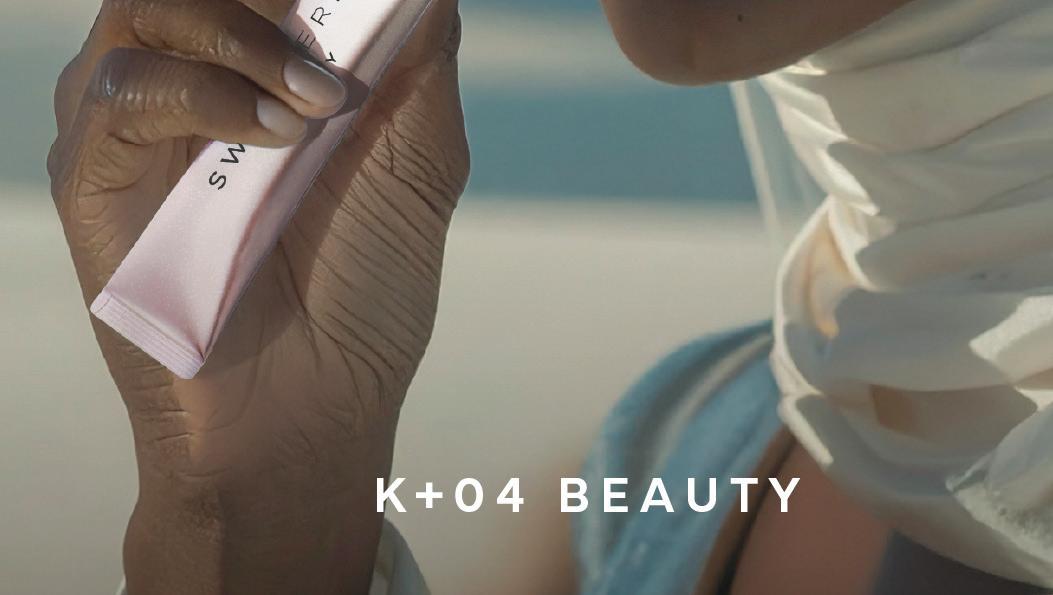















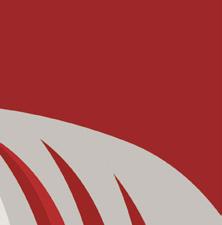










Celebrating the pioneers who broke barriers and paved the way for generations
Celebrating the pioneers who broke barriers and paved the way for generations.
The story of the UAE’s success cannot be told without the story of its women. In a nation built on vision, ambition, and unity, Emirati women have risen from being contributors to becoming architects of progress. They are leading ministries, flying aircraft, captaining ships, directing films, pioneering science, designing fashion that graces global runways, and breaking ground in industries once thought unreachable.
This rise did not happen by chance. It is the result of deliberate policies that place women at the heart of national development, the foresight of leaders who believe in equality, and the courage of women who seized every opportunity to excel. Education, innovation, and empowerment have been the stepping stones, while resilience and determination have been the driving force. In every corner of the Emirates — from boardrooms in bustling cities to labs, workshops, and cultural stages — women are redefining what is possible.
They embrace challenges as a chance to innovate, stand firm in the face of doubt, and carry forward a legacy of strength that inspires the next generation.
This feature honors the first Emirati women to break barriers in their respective fields. Their journeys are more than personal achievements; they are national milestones that light the way forward. By daring to be the first, they have proven that progress is unstoppable when ambition meets opportunity. Their rise is not just a chapter in history — it is the foundation for a future where every Emirati girl grows up knowing there are no limits to her dreams.
The story of Emirati women’s progress has evolved far beyond the milestones of “firsts.” What began with a handful of pioneers stepping into uncharted territories has grown into a national movement where female leadership is not the exception but the expectation. These trailblazers opened doors, but what stands out today is how wide those doors have become, welcoming an entire generation of women eager to define their place in the UAE’s future.
The country’s rapid transformation over the past five decades has created fertile ground for women to thrive. As the UAE shifted from a modest federation to a global hub for business, culture, and innovation, women have mirrored this trajectory, moving from contributors to
architects of growth. Where once their stories might have been told in isolation, today they represent a collective narrative of empowerment, policy, and purpose.
At the heart of this transformation lies a deliberate, visionary commitment from leadership. The UAE’s founding philosophy has always been anchored in human capital development, and women have been a central part of that vision. From early investments in education for girls to contemporary policies that enforce equal pay and gender balance in government boards, the country has consistently aligned progress with inclusivity. The establishment of the UAE Gender Balance Council, the integration of women into the cabinet, and initiatives under the National Strategy for Empowerment of Emirati Women reflect a long-term plan: to ensure that women are not only visible but influential in every sector. This foundation ensures that the success of Emirati women is not accidental but systemic — the result of a nation committed to enabling its full talent pool.
1: Dr. Suaad Al Shamsi First UAE Female Aircraft Engineer
2: Captain Sahar Rasti First Emirati Female Ship Master
3: Dr. Maya Alhawary First Emirati Female in Educational Leadership
4: Suaad Al Suwaidi First Emirati Female Wildlife Photographer
5: Marwa Al Mamari First UAE Aerospace Engineer
6: Mona Al Mansouri Fashion Designer
7: Nayla Al Khaja First UAE Female Film Director & Producer
8: Reem Al Hassani First Emirati Woman to Manufacture Olympic Boats
9: Rouda Al Serkal First Emirati Woman Chess Grandmaster
10: Captain Aysha Alhameli First Emirati Woman Pilot
11: Amna Al Qubaisi First Emirati Woman Racing Driver
12: Shaikha Nasser First Emirati Woman to Lead UN Tourism










































First Female UAE Aircraft Engineer & Vice President, Shehana (UAE)
Dr. Eng. Suaad Al Shamsi’s journey is one of vision, persistence, and unmatched achievement in aviation.
Armed with a Doctorate in Aviation Management, an MBA in Aviation Management, Master’s and Bachelor’s degrees in Aeronautical and Aerospace Engineering from leading UK universities, and an honorary doctorate for her role in women’s leadership, she has built a career defined by firsts.
Her aviation story began with hands-on training at global industry leaders such as Messier Bugatti, Honeywell, Kunz, Airbus, and Boeing. She went on to make history as the first Emirati woman to join Emirates Airlines as an aircraft engineer, dedicating over 17 years to aircraft maintenance before taking on her current role as Technical Advisor for one of the UAE’s largest aviation projects.
Beyond engineering, Dr. Al Shamsi is Vice President of Shehana – Women in Aviation, UAE; founder of the Women in Aviation – Middle East Chapter; CEO of L2L Consultation; and Ambassador of the International Union for Technical Education in the UAE. She is also the creator of Top Takeoff, a program designed to empower young girls to enter aviation.
Her impact has been recognized with numerous awards, including the Emirates Women Award, Women in Aviation Sustainability Award, and Future Innovation Award, alongside honors for creativity, sustainability, and leadership. A frequent speaker at global forums and a jury member for prestigious competitions, she has also authored multiple novels, reflecting her passion for knowledge and storytelling.
Dr. Suaad’s career stands as a symbol of how determination, expertise, and a commitment to empowering others can elevate not just an industry, but a nation.










































UAE’s First Female Ship Captain & Founder & CEO, SJR Group
Captain Sahar Rasti has navigated uncharted waters — both literally and figuratively — to become the UAE’s first female ship captain. Her career in the maritime industry began in 2015 at Abu Dhabi Ports as an administrative assistant, but her determination and skill quickly propelled her to the role of Maritime Services Coordinator, a first for an Emirati woman. In that capacity, she played a pivotal role in aligning company practices with the highest international standards, setting a precedent for operational excellence in the region.
Today, she is the Founder and CEO of SJR Group, a dynamic general trading company that reflects her vision for innovation and diversification. Under her leadership, the group operates across multiple sectors, including smart home design, honey production and export, horse training and stable management, and specialized maritime services. Each venture is driven by her commitment to quality, sustainability, and progress.
Captain Rasti’s journey is a testament to resilience and ambition. By breaking through barriers in a traditionally male-dominated industry, she has inspired a new generation of Emirati women to explore careers at sea and in leadership. Her work continues to shape the maritime industry while expanding into sectors that connect tradition with modernity, proving that leadership knows no boundaries. Her influence extends far beyond her enterprises; she has become a symbol of empowerment and perseverance for women in the UAE. Through her achievements, Captain Rasti demonstrates that dedication and vision can transcend barriers, creating opportunities not just for herself, but for the many women who look to her as a role model.
























































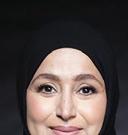






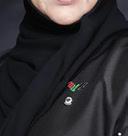





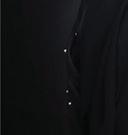
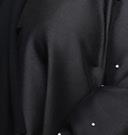








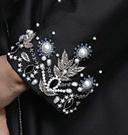



First Emirati Woman in Educational Leadership
Dr. Maya Alhawary has dedicated her career to shaping the UAE’s educational landscape, becoming the first Emirati woman to lead an educational institution in the MENA region. With a vision that goes beyond academic excellence, she champions the development of personal skills, leadership qualities, and innovative thinking in students and educators alike.
Her journey began in 2012 as Principal and Acting Director of Dubai Women’s College High School, where she set new standards for learning environments in the region. In 2014, she became Chairwoman of the Board of Governors and Director of Planning at Dubai Carmel School, a role in which she continues to influence educational strategy and policy. Recognized as the “Ambassador of Knowledge” by the UAE Red Crescent, Dr. Alhawary has worked extensively with government entities to train and inspire employees across the country.
A TEDx speaker and frequent guest at national and interna tional conferences, she is committed to advancing education through both innovation and cultural values. Her influence has been recognized on social media, where she was listed among the UAE’s 50 most influential accounts in 2019, using her platform to advocate for lifelong learning and women’s empowerment.
Through her leadership, Dr. Alhawary continues to inspire a new generation of educators and students, proving that education is the most powerful tool for shaping the nation’s future.


First Emirati Female Wildlife Photographer

4
Breaking boundaries in both art and adventure, Suaad Al Suwaidi holds the distinction of being the first Emirati — and the first Arab woman — to specialize in wildlife photography. Her journey is one of courage, adaptability, and an unshakable passion for capturing the natural world. Originally trained as an engineer and architect, she made the difficult decision to leave behind a secure profession to pursue what she excelled at — photographing some of the planet’s most elusive and magnificent creatures.
From the sweeping plains of Africa, where she documented the power and grace of lions, to the rugged slopes of Himachal Pradesh in India in pursuit of the elusive snow leopard, Suaad’s work has taken her to some of the most challenging terrains in the world. Her artistry lies not only in the images she produces but in the patience, precision, and resilience required to create them.
Born in Abu Dhabi and raised in Louisiana, USA, Suaad credits her diverse upbringing for her open-mindedness and adaptability. Childhood days filled with play, exploration, and interaction with people from different cultures gave her the confidence to navigate unfamiliar environments with ease — a skill that would prove invaluable in the wild.
Today, Suaad’s images stand as a testament to the beauty, fragility, and importance of wildlife. Through her lens, she not only tells the story of the animals she encounters but also inspires others to appreciate and protect the natural world. Her path proves that passion, when pursued fearlessly, can lead to extraordinary places. 3


















Marwa Al Mamari has carved her name into the UAE’s history books as the nation’s first female aerospace engineer, breaking through barriers in one of the world’s most technical and male-dominated industries. Her career stands as a beacon for young women in the Emirates and beyond, proving that STEM fields — especially aerospace — are spaces where ambition and talent can truly take flight.
Armed with an MSc in Aviation Safety and now pursuing a PhD in Artificial Intelligence in aviation, Marwa’s work blends deep technical knowledge with a forward-thinking approach to innovation and safety. Her professional journey has spanned both academia and industry, including key roles at the UAE’s General Civil Aviation Authority, where her expertise has been instrumental in advancing aviation safety and accident prevention.
Marwa’s path is as much about challenging stereotypes as it is about engineering. In a field often defined by precision and regulation, she brings a creative and multifaceted spirit, proving that technical brilliance and personal expression can coexist. Her story has inspired countless young Emiratis, particularly women, to pursue careers in STEM and see themselves at the helm of industries once thought inaccessible.
With each milestone, Marwa not only strengthens the UAE’s presence in global aviation but also widens the runway for the next generation of innovators to take off.








At just 16, Captain Aysha Al Hameli made history as the UAE’s first female pilot, charting a course that would inspire generations to come. Today, she stands as a leading figure in global aviation, serving as the Assistant Director General of the Air Accident Investigation Sector at the General Civil Aviation Authority (GCAA). Her leadership has elevated the UAE’s aviation safety standards to rank among the best worldwide, combining technical expertise with strategic innovation.
From 2009 to 2020, Alhameli represented the UAE on the ICAO Council, becoming its youngest permanent representative and influencing the development of global aviation strategies. She has been instrumental in securing more than 80 bilateral and multilateral air transport agreements, reinforcing the UAE’s reputation as an international aviation hub. Holding an honorary doctorate from Aegean University, along with advanced degrees from McGill University and City University, and pilot licenses from both the UAE and Jordan, her credentials reflect her unwavering commitment to excellence. For Captain Aysha Al Hameli, every milestone is not just a personal achievement, but a step forward for women in aviation and the future of safe, innovative air travel.
Her remarkable journey continues to inspire young Emirati women to pursue careers in aviation and leadership. By breaking through barriers at such a young age, Captain Aysha Al Hameli has redefined possibilities, proving that ambition and perseverance can reshape industries and open new horizons for future generations of women worldwide.


















Khaja
First Emirati Female Film Director & Producer
Nayla Al Khaja has redefined the cinematic landscape of the United Arab Emirates, becoming the nation’s first female film director and producer and paving the way for a new era of Emirati storytelling. Her career blends cultural authenticity with a global cinematic vision, challenging conventions and amplifying voices that were once underrepresented on screen.
As the founder and CEO of Nayla Al Khaja Films, she has built a platform that produces work across genres, from award-winning short films to major international projects. She also established The Scene Club, Dubai’s first film club, fostering a vibrant community for film enthusiasts. Her debut feature, Three, reached theatres across the Gulf and MENA region, while her upcoming projects — including the fantasy-drama BAAB with music by A.R. Rahman and the anthology series The Alexandria Killings — signal her growing global presence.
Nayla’s fluency in multiple languages and deep understanding of both Gulf culture and international cinema allow her to navigate complex productions with ease. Recognized worldwide, she is a sought-after speaker, advocating for women’s representation in film and championing narratives that bridge tradition and innovation.
Through her work, Nayla Al Khaja has shown that cinema can be both a mirror of society and a catalyst for change, inspiring a new generation of filmmakers to tell stories that resonate on the world stage.














First Emirati Woman to Manufacture Olympic Rowing Boats
Reem Al Hassani’s story is one of transformation — from decorated athlete to pioneering boat-maker. With over 60 medals to her name as an Olympic rowing champion, she traded the podium for the workbench in 2021, determined to design and build rowing boats that carried not just athletes, but the identity of the UAE. Her vision was clear: to merge world-class engineering with the heritage and soul of the Emirates.
Her journey began in 2017 as the first Emirati athlete to join the Abu Dhabi Sailing and Yacht Club. By 2018, she had claimed the title of UAE Olympic Rowing Champion. But competing wasn’t enough — she wanted to create vessels that reflected the land and sea she called home. Entering the highly specialised, male-dominated world of Olympic boat manufacturing, she brought to the craft the precision of an engineer, the insight of an athlete, and the pride of an Emirati.
Every detail in her boats is intentional, from the materials sourced within the UAE to the curves that echo the Gulf’s waves. Built to the strict specifications of Olympic competition, her designs stand out globally not just for performance, but for the cultural story they carry.
With plans to export her boats to championships worldwide, Reem aims to see the UAE’s name sail across every sea. Her message to young Emirati women is simple yet powerful: when your country believes in you, there should be no limits to your ambition.



























Rouda Essa Alserkal
First Emirati Female Chess Grandmaster
At just 15 years old, Rouda Essa Alserkal has already etched her name in history as the first Emirati — and the first Gulf player — to be awarded the prestigious Woman Grandmaster title by the International Chess Federation. Her journey began not in a tournament hall, but at home, where a chessboard sparked her curiosity at an early age.
At just four years old, she could already move the knight with precision, a skill that caught the attention of coach Hisham Al Argha after she was initially turned away from a chess club for being “too young.” Recognising her potential, he welcomed her into the club, setting in motion a journey that would see her rise through the competitive ranks.
Rouda’s passion was cemented in her very first tournament, where the thrill of strategy, problem-solving, and the uniqueness of every game drew her in. Winning was rewarding, but it was the mental challenge that kept her coming back. “Every match is different,” she has said, “and there’s always something new to learn.”
Balancing school with elite competition, Rouda’s success serves as an inspiration to young Emiratis, proving that age is no barrier to excellence. With her sharp mind and unshakable focus, she continues to push boundaries, showing the world that the UAE’s talent can shine in arenas far beyond the traditional.
Her rise reflects not only personal brilliance but also the UAE’s growing presence on the global intellectual stage. Rouda embodies the spirit of innovation and resilience, proving that with dedication, even the youngest minds can achieve greatness. Her journey encourages future generations to embrace strategy, creativity, and confidence in pursuing their dreams.







First Emirati Fashion Designer
Mona has received numerous prestigious accolades—honored as Designer of the Year in 2010 by the French magazine L’Officiel for her societal impact, and later named Best Designer in Asia and Best in the Middle East by GR8 in 2014, as well as being entitled Knight of the Arab World in design by the United Nations. She has served as a goodwill ambassador since 2014 and earned an honorary doctorate for youth leadership and charitable work. 9
Mona Al Mansouri’s remarkable journey began in the realm of science—she earned a double major in geological and biological engineering and then spent six years working as a geophysicist in Abu Dhabi’s petroleum industry. In 1991, she took a bold leap, leaving behind her engineering career to pursue her true calling: fashion.
Driven by a lifelong passion for style—one that manifested early on as she cut images from fashion magazines—Mona taught herself the craft of haute couture, embracing creativity over convention.
Her fashion creations span an impressive list of international stages: Italy, Switzerland, Britain, Egypt, Lebanon, Qatar, Bahrain, and even Tel Aviv—where she made history as the first Arab national featured at its fashion week. Notably, she opened the Bridal Fashion Show at Ajman Palace Hotel and showcased a Dubai Festival City fashion show featuring a 3D dress of Dubai’s landmarks to celebrate UAE National Day and the Expo 2020 win. In 2013, she inaugurated Beirut Fashion Week on what was dubbed “the longest catwalk in the world” over the Mediterranean Sea.




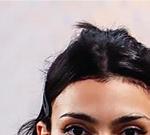









First Emirati Female Professional Racing Driver
Amna Al Qubaisi has carved her name into motorsport history as the first Emirati woman to become a professional racing driver, blazing a trail for women in one of the world’s most competitive arenas. Beginning her journey in karting at just 14, she quickly demonstrated exceptional skill and determination, becoming the first Arab woman to compete in the Rotax Max Challenge Finals.
Her career has been marked by milestones, from winning the GCC Drivers Academy competition to securing victories in the Italian F4 Championship. Amna’s talent and tenacity have propelled her into international circuits, including the F3 Asian Championship and the Formula Regional European Championship, where she continues to prove herself against the sport’s best.
Beyond the racetrack, Amna’s influence extends into the world of fashion and brand collaborations, partnering with names like Loewe and On Running. Yet her ultimate ambition remains firmly in motorsport—setting her sights on Formula 1 while inspiring a new generation of Emirati and Arab women to chase their dreams fearlessly in male-dominated fields.
Her fearless drive on and off the track has transformed her into a symbol of empowerment, showing that passion knows no boundaries. Amna’s journey not only fuels her pursuit of Formula 1 but also paves the way for Emirati and Arab women to claim their rightful place in motorsport.





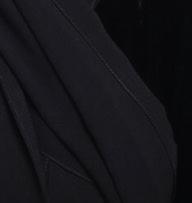
First Emirati Woman to Lead UN Tourism
Shaikha Nasser Al Nowais has made history as the first Emirati woman—and the first woman in UN Tourism’s 50-year history—to be appointed Secretary-General, set to serve the 2026–2029 term. Her election marks a defining moment for gender equity in global tourism leadership and reflects the UAE’s commitment to empowering women in influential roles.
With a distinguished career in the hospitality and tourism industry, particularly through leadership positions at Rotana Hotels, Al Nowais brings a wealth of expertise and vision to the role. Her priorities are expected to center on sustainable tourism development, advancing women’s participation in the workforce, and shaping forward-looking tourism policies that balance growth with cultural and environmental preservation.
Celebrated both at home and abroad, her appointment is seen as a milestone in progress and inclusion—positioning the UAE as a driving force in shaping the future of the global tourism landscape.
Her achievement signals a new era for women in global tourism governance. By combining Emirati values with international vision, Shaikha Nasser Al Nowais is set to champion inclusivity, sustainability, and innovation—proving that empowered leadership can create pathways of progress for women and transform industries on a global scale.
















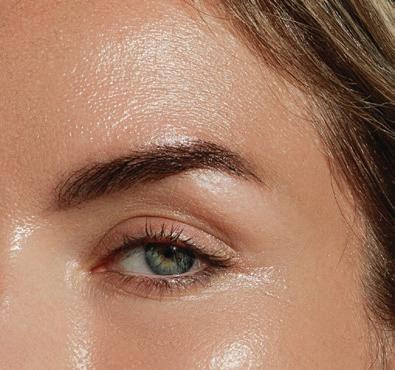






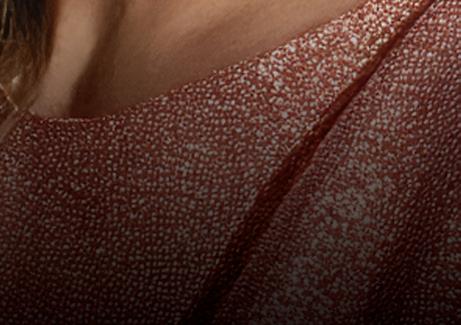





COLLAGEN & BIOSTIMULATORS TREATMENTS


BOTOX & DERMAL FILLERS


BODY CONTOURING & FAT REDUCTION






ACNE & SCAR TREATMENTS



SKIN REJUVENATION TREATMENTS

PLASTIC DAY SURGERIES



HAIR LOSS TREATMENTS


NON-SURGICAL FACE & NECK LIFTS


COSMETIC DENTISTRY





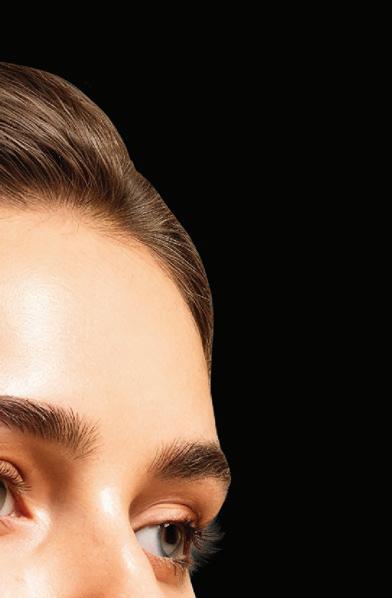


In a region where the pace of change is rewriting history in real time, Her Highness Sheikha Jawaher bint Khalifa Al Khalifa stands as both participant and architect. Royal, entrepreneur, philanthropist, and advocate, she is redefining what influence means in the modern Gulf. Her ventures span nine industries under Green Aventurine Holding, her philanthropic work empowers youth and women across the region, and her voice resonates on global platforms where dialogue, diplomacy, and development intersect.
What distinguishes Sheikha Jawaher is not simply her accomplishments, but the values that guide them: compassion, conviction, and clarity. Hers is a leadership style that is as forward-looking as it is rooted in heritage — a rare ability to blend modern ambition with timeless purpose.
Where vision meets compassion, and business becomes a bridge to empowerment.



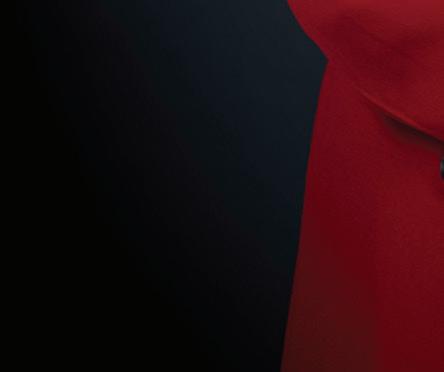




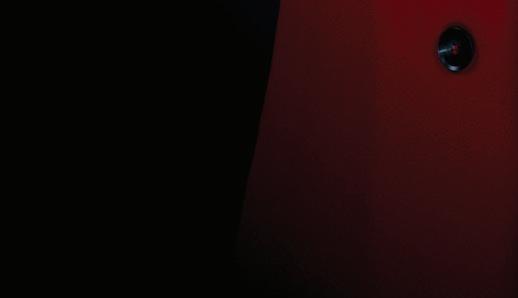






The foundation of her philosophy was laid early. She often recalls her mother’s courage in pursuing a career in fashion design at a time when Arab women had limited visibility in the creative industries. That decision, unconventional for its era, taught her the importance of pursuing passion with conviction. Equally formative was her father’s belief in women’s agency and leadership. From him, she absorbed the principle that empowering women strengthens entire societies. “The balance of my mother’s courage and my father’s encouragement shaped me,” she reflects. “It taught me that leadership is most impactful when it is rooted in both purpose and progress.”
It is this dual inheritance, of creativity and conviction, that now defines her journey.
Sheikha Jawaher’s career began young, and with it came skepticism. Being underestimated was familiar territory,not only because she was a woman, but because she was entering serious business spaces at an age when many were still finding their footing. Her response was never to retreat, but to rise. “Every challenge became a source of motivation, and every setback a reason to try harder,” she says. Where others might have seen walls, she saw stepping stones. This quiet resilience became her hallmark, showing that power can be graceful, and leadership can be firm without being loud.
Green Aventurine: Enterprise with Purpose
Today, she oversees Green Aventurine Holding, a company whose presence extends across nine sectors, from real estate and technology to luxury services and international trade. To her, the diversity of this portfolio is not a challenge but a strength.
She anchors her leadership on two essentials: time and trust. Managing time with intention and empowering the right people with trust has allowed her to foster a culture of innovation. “Leadership is never a one-person act,” she explains. “It is about surrounding yourself with capable, passionate individuals, aligning them with the vision, and giving them the freedom to lead.”
This ethos has made Green Aventurine less a corporate entity and more a living labo-
ratory for innovation, one that thrives on collaboration, calculated risk, and a readiness to evolve.
If Green Aventurine represents the scale of her ambition, the Sheikha Jawaher Al Khalifa Foundation for Youth Empowerment reflects the depth of her purpose. She established it out of a recognition that while the Gulf is rich in young talent, many lack the platforms and mentorship required to thrive. “Young people are never short of vision,” she observes. “What they often lack is support.” The foundation’s role is to bridge that gap, to connect ambition with access, ideas with opportunity.
The true measure of impact, she insists, is not numbers but transformations. The quiet student who finds her voice, the dreamer who turns an idea into a thriving business, the volunteer who grows into a community leader, these are the outcomes that define her legacy.
It is a philosophy that not only defines her own work but sets an example for the next generation of Gulf leaders.
Unlike traditional models of leadership that emphasize hierarchy, Sheikha Jawaher sees her role as one of connection. Early in her career, she wanted to do everything herself; with time, she learned the power of trust, listening, and building aligned teams. Her leadership philosophy has since evolved into one centered on empathy, collaboration, and inclusivity. “Leadership today,” she notes, “is less about titles and more about impact. Less about hierarchy, more about humanity.”
It is a philosophy that not only defines her own work but sets an example for the next generation of Gulf leaders.
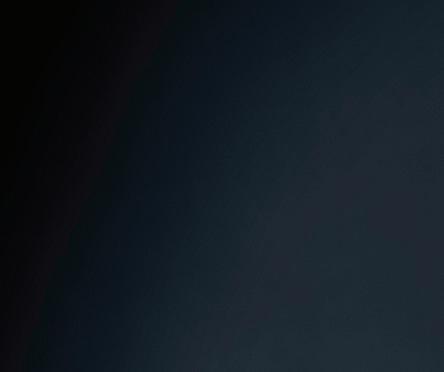

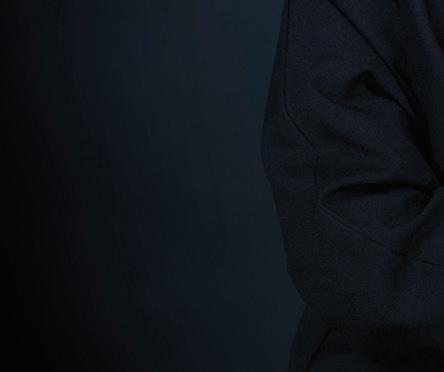
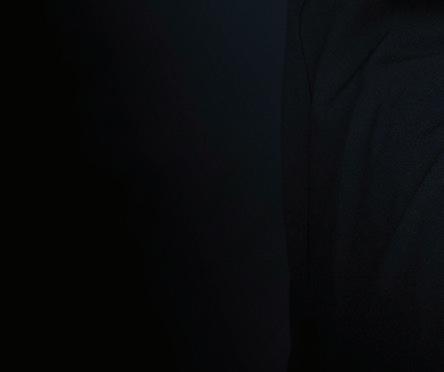



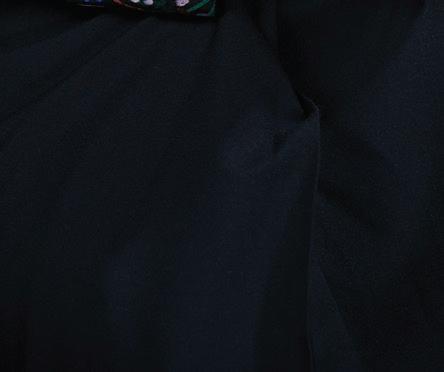




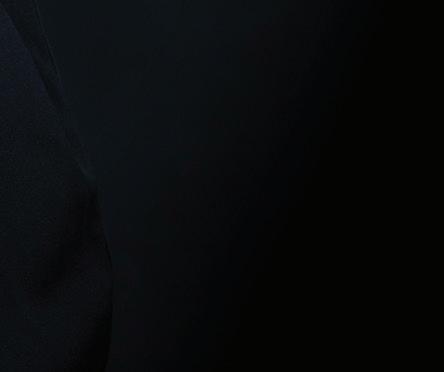
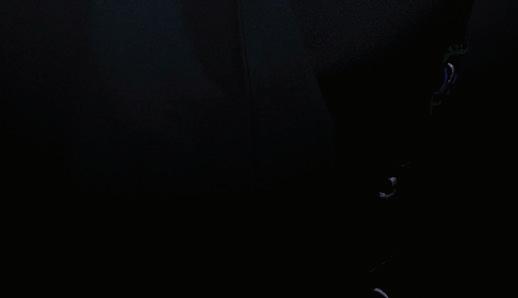

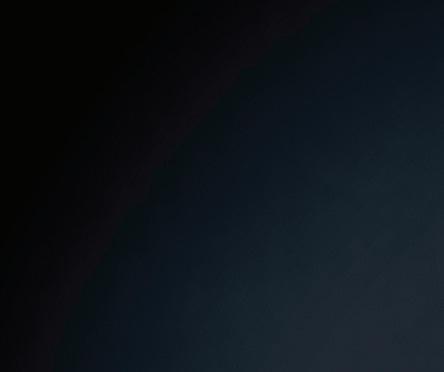
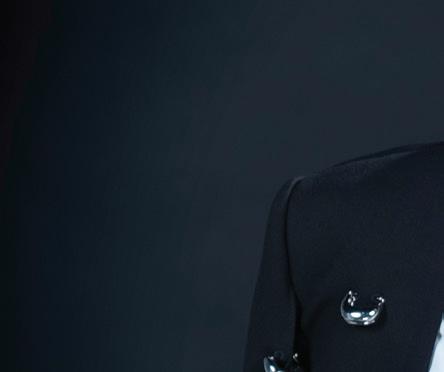



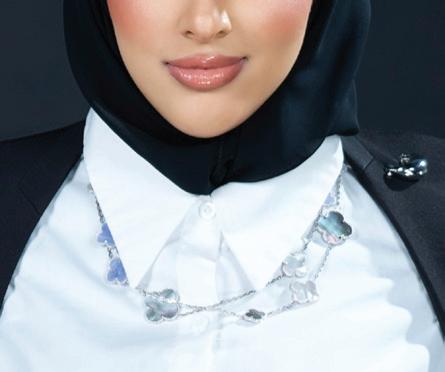
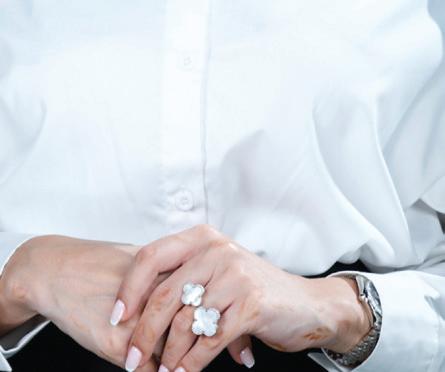








For Sheikha Jawaher, business is more than enterprise; it is also a form of diplomacy. “Every partnership is, at its heart, a dialogue,” she explains. “When people from different cultures and perspectives come together to collaborate, they create trust, break stereotypes, and build peace.”
This belief has guided her business approach, always aligning with partners who value ethics, inclusion, and long-term impact. In her eyes, business can do what politics sometimes cannot: build bridges across borders, foster stability, and create shared progress.
Among the stories that remain closest to her heart is that of a young woman she once mentored,quiet, hesitant, and often told her dreams were unrealistic. With encouragement and guidance, that young woman turned a small idea into a sustainable fashion enterprise employing underserved women. Today, she speaks confidently on global platforms and credits Her Highness for believing in her before she believed in herself.
Her Highness is particularly inspired by the Gulf’s Gen Z, whom she describes as fearless and transformative. “They don’t wait for permission,” she notes. “They are redefining what it means to work, to lead, and to give back.” From launching startups on their phones to using AI with ease, Gen Z is forcing systems to become more transparent, agile, and human. For her, their energy is not a disruption but a gift: a reminder that leadership must remain responsive to the pace of change. Her role, she believes, is to nurture their boldness while ensuring institutions evolve to match their speed.
Sheikha Jawaher is deeply aware of the challenges faced by women entrepreneurs in the Gulf. “The women I meet are some of the most creative and visionary individuals, but too often they are held back not by potential, but by lack of
access, to capital, to networks, to visibility.”
She advocates for structural change: inclusive investment frameworks, gender-responsive policies, and a redefinition of success that measures not only profit but impact. Through her businesses and platforms, she actively works to create ecosystems where women are seen, funded, and celebrated. “Empowering women economically isn’t just about fairness,” she says. “It’s about future-proofing our societies. Because when women rise, communities rise with them.”
As she reflects on her journey, Sheikha Jawaher speaks with humility and clarity: “Titles fade, achievements evolve, but the way you touch lives,that endures.”
Her vision of legacy is not one of monuments, but of people: lives uplifted, opportunities created, voices amplified. She hopes to be remembered as a woman who opened doors, built bridges, and led with both strength and softness. In every sense, hers is not just a story of personal success, but of collective empowerment. And in that, Sheikha Jawaher is not simply shaping the Gulf’s present,she is helping to write its future.




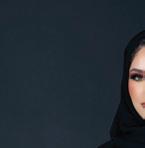
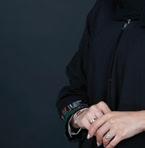

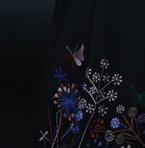

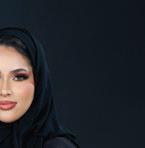
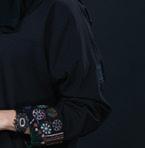







“To me,” says Sheikha Jawaher, “mentorship is not about giving advice, it’s about planting belief.” That belief, she insists, can transform not just a single life but entire generations.
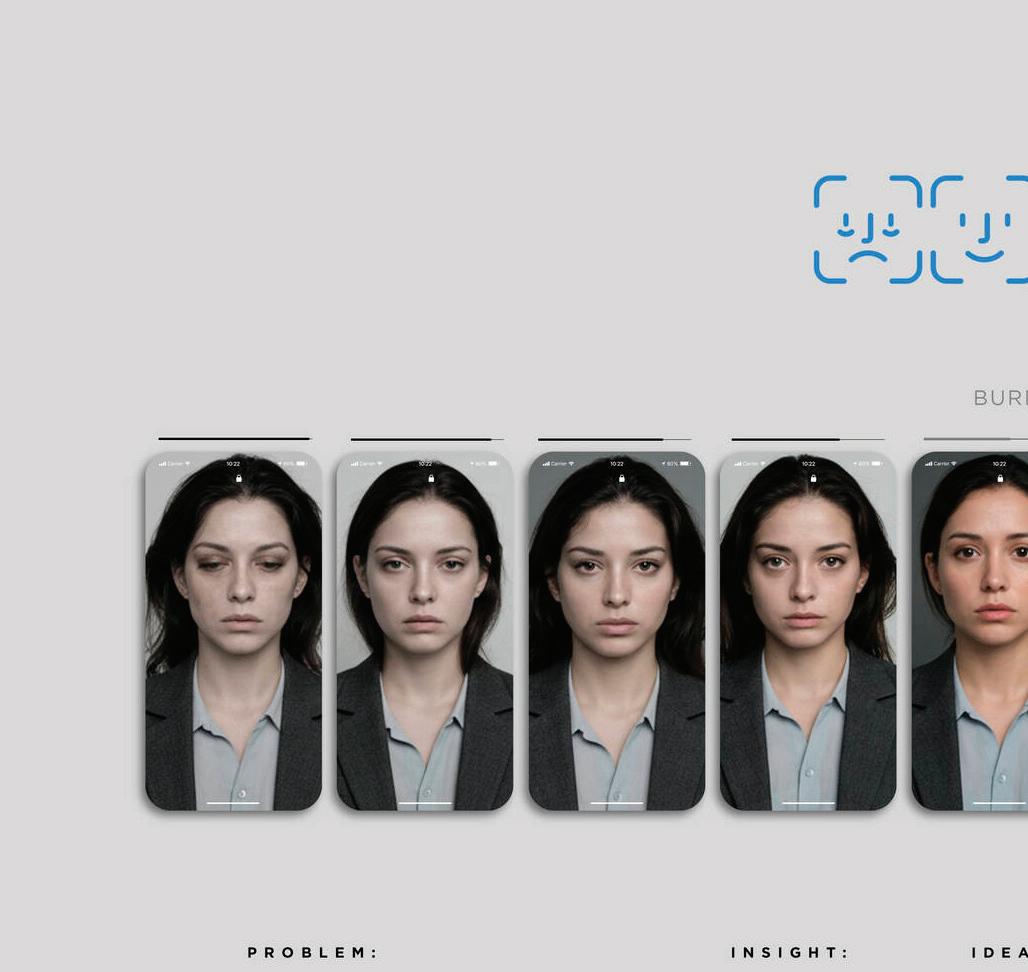


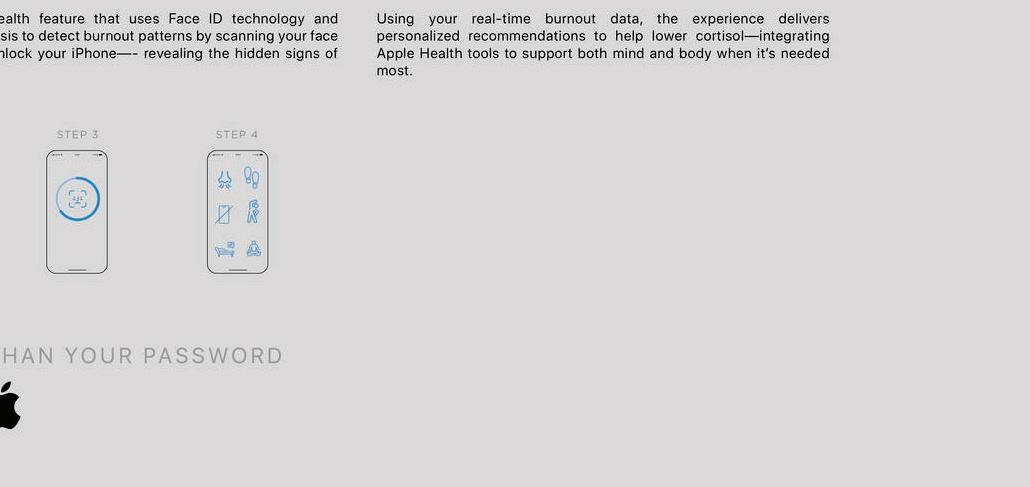
Over the past decade, the United Arab Emirates has emerged as one of the world’s most ambitious healthcare investment destinations. What was once a regional healthcare market reliant on imports and outbound medical travel is now transforming into a global hub for healthtech, biotechnology, and medical tourism.
Driven by bold national strategies, significant government spending, and a thriving startup ecosystem, the UAE is positioning itself at the cutting edge of healthcare innovation. With healthtech startups raising multi-million-dollar rounds, regulators adopting AI and telemedicine, and hospitals attracting medical tourists from across continents, the sector is now central to the nation’s vision for a knowledge-based economy.
The Global Context: Healthcare in Transformation
Globally, healthcare is experiencing tectonic shifts.
Rising populations, increased life expectancy, and the prevalence of chronic diseases are straining traditional systems. At the same time, advances in artificial intelligence (AI), digital health records, wearable devices, and precision medicine are reshaping how care is delivered.
Between 2018 and 2022, the healthcare services segment alone was expected to add nearly $2.9 trillion in annual sales worldwide. Biologics, veterinary care, and digital health are among the fastest-growing categories, with double-digit growth rates.
The Middle East ranks among the fastest-expanding healthcare markets globally, with a 12.8% CAGR, underscoring the region’s increasing strategic importance.
Yet, the COVID-19 pandemic dramatically exposed the fragility of existing systems.
Across the GCC, healthcare revenues dropped by 15–20% in 2020, driven by cancellations of elective surgeries and reduced in-patient admissions. While revenues fell, demand for resilience, digitalization, and innovation surged — accelerating investment into telemedicine, AI diagnostics, and preventive care.
At the heart of this transformation is the UAE, a country that has made healthcare and life sciences central to its economic vision. Under Dubai Industrial Strategy 2030 and Abu Dhabi Vision 2030, pharmaceuticals and medical technology were identified as strategic growth sectors.
The numbers tell a compelling story:
• The UAE healthcare market is projected to grow from $185.5 billion in 2019 to $243.6 billion by 2023.
• Dubai alone will require an additional 8,300 physicians and 8,800 nurses by 2025.
• Healthcare spending in the country is expected to rise to $26 billion by 2028, representing 4.6% of GDP.
But perhaps the most striking shift is the move from reliance on imported pharmaceuticals to local manufacturing and innovation. This is not just about reducing dependence — it is about becoming a global supplier of advanced health-









The Startup Surge: Healthtech in the Spotlight
Few sectors have captured investor attention in the UAE quite like healthtech. The country is now home to more than 250 digital health startups, spanning telemedicine, insurance technology, AI diagnostics, and medical data platforms. Notable examples include:
• Okadoc – The region’s
$2.9
trillion by 2025 — that’s the potential gain from closing care solutions.



















first instant appointment booking platform, backed by $12.3M in funding.
• Altibbi – A telemedicine community platform that secured $23M led by Arbor Ventures and Mubadala Capital.
• Vezeeta – An appointment management and subscription model provider, with $63M raised from regional and international investors.
• Sehteq – A digital health insurance platform with
15-20%
healthcare revenues dropped
$52M in funding. Bayzat – A comparison and HR platform offering payroll and health insurance solutions, raising $31M. These investments signal confidence in the UAE’s role as a launchpad for scaling healthtech across the Middle East and North Africa.
Government as Catalyst: AI, Data, and Digitalization
Unlike many markets where private capital drives health-
$2.7
trillion by 2025 — that’s the potential gain from closing


care innovation, in the UAE the government is the lead architect. National strategies explicitly integrate AI, robotics, and automation into healthcare.
• National Artificial Intelligence Strategy 2031 aims to establish the UAE as an international AI hub, with healthcare as a priority sector.
• The “Think AI” initiative accelerates AI deployment in public health systems.
• Abu Dhabi’s Telemed-
$185.5
billion in 2019, UAE healthcare market is projected
icine Centre, launched in 2016, saw a 2,000% increase in calls during COVID-19, demonstrating both scalability and demand.
• In 2018, the UAE invested over $42 million in healthcare analytics software, with growth projected at 5.3% CAGR. The push goes beyond policy: regulators are rethinking licensing, patient data standards, and public-private partnerships to build a robust healthtech ecosystem.
Investment Ecosystem: Incubators, Accelerators, and Capital
Supporting this surge is a thriving ecosystem of incubators, accelerators, and venture capital:
• Dubai SME’s Ztartup incubator focuses on AR/ VR, emergency tech, and digital healthcare solutions.
• Health Plug and Play MENA, a partnership between Abu Dhabi’s DoH and global accelerator Plug and Play, connects startups with funding and global partners.
• The AI Lab by Abu Dhabi DoH fosters inno-
$243.6
billion in 2023, UAE healthcare market is projected
vation and experimentation in medical AI.
• The UAE is home to healthcare free zones such as Dubai Healthcare City (DHCC), where foreign investors enjoy 100% ownership, worldclass infrastructure, and tax benefits.
This ecosystem has positioned the UAE not just as a consumer of healthcare innovation but as an exporter of healthtech startups to the wider MENA region.
Healthcare in the UAE has seen a structural shift towards privatization and mandatory insurance. Abu Dhabi’s Thiqa program and Dubai’s mandatory health insurance schemes have increased demand for private healthcare facilities, creating lucrative opportunities for investors.
Private sector healthcare spending is projected to grow at 9.5% CAGR, outpacing government spending at 4.4%. This trend reflects the UAE’s push to integrate private capital and expertise into its healthcare system, ensuring long-term sustainability.
Among the UAE’s fastestgrowing healthcare segments is cosmetic surgery and wellness medicine. Dubai ranks among the top 20 global destinations for cosmetic procedures, with over 400 aesthetic clinics and 150 day surgery centers.
Popular procedures include breast augmentation, body contouring, fillers, and platelet-rich plasma treatments. The global cosmetic surgery market is projected to reach nearly $22 billion by 2023, and Dubai is positioning itself as a premium hub for this demand.
The UAE healthcare industry is expected to generate AED 39.4 billion by 2025, fueled by over 700 healthcare projects worth $61 billion currently under development.
From AI-driven diagnostics and telemedicine platforms to integrated medical tourism portals and R&D centers, the country’s healthcare transformation is more than incremental — it is systemic. By combining government vision, private investment, and global partnerships, the UAE is well on its way to becoming not just a regional leader but a global benchmark in healthtech innovation.
For global investors, the UAE offers a rare combination:
• Strong government support and visionary strategies.
• A thriving startup ecosystem with proven success stories.
• Rapidly growing demand, both domestic and international.
• Regulatory innovation
and infrastructure tailored for healthtech. As the world continues to redefine the future of healthcare, the UAE stands out not merely as a participant, but as a pioneer shaping global health investment trends
The UAE’s ambition in healthtech goes beyond importing advanced tools or hosting premium hospitals. The nation is strategically moving toward a knowledgedriven healthcare economy, where intellectual property, research, and homegrown solutions form the backbone of progress. Universities such as Khalifa University, Mohammed bin Rashid University of Medicine and Health Sciences, and the newly launched AI research centers are producing talent pipelines that merge medicine with engineering and data science. This integration is critical: healthtech is not simply about adopting digital tools, but about developing new scientific approaches, algorithms, and therapies that the UAE can export. International pharmaceutical companies are being encouraged not just to sell in the UAE, but to establish R&D centers and manufacturing facilities locally, a shift visible in partnerships with Pfizer, GlaxoSmithKline, and Novartis. These collaborations bring clinical trials, drug development, and advanced biotech
manufacturing closer to Emirati soil, enabling the UAE to become a regional life sciences hub.
Artificial intelligence in healthcare is no longer futuristic in the UAE — it is operational. Hospitals are using AI-powered triage systems to reduce waiting times, while robotic surgery is becoming a hallmark of advanced hospitals in Dubai and Abu Dhabi. Cleveland Clinic Abu Dhabi recently reported significant success with robotic-assisted cardiac and orthopedic surgeries, while Dubai Health Authority has expanded AI use in radiology to enhance diagnostic accuracy. Robotics is also moving into rehabilitation and eldercare. Exoskeleton technologies, previously limited to research labs, are being piloted in UAE rehabilitation centers to help patients with spinal injuries walk again. Combined with smart sensors and AI, these systems not only assist but also collect continuous recovery data, fueling better patient outcomes and predictive healthcare models.
One of the most transformative investments is in genomics and precision medicine. The UAE Genomics Program aims to map genetic data of Emiratis to predict disease risks, personalize treatments, and enhance preventive care. This effort places the UAE
among the few nations with large-scale genomic databases tied directly to healthcare delivery. The potential here is immense: precision oncology, fertility treatments, and rare disease management can all benefit from genomic insights. For investors, this creates fertile ground in biotech startups, genome sequencing technologies, and data analytics platforms that turn genetic data into actionable healthcare solutions.
Globally, the healthcare system is shifting from reactive care to preventive and wellness-driven models, and the UAE is leading in this shift. The government has invested in public health campaigns, school-based nutrition programs, and early-detection screenings. What sets the UAE apart, however, is how preventive care is being commercialized into investable wellness ecosystems.
From luxury wellness resorts in Ras Al Khaimah to integrative medicine centers in Dubai Healthcare City, the UAE blends hospitality, technology, and medicine. Wearable health devices connected to national health records are increasingly used to monitor chronic conditions. Companies that can provide data-driven wellness platforms — where lifestyle coaching meets AI-based analytics — are positioned to thrive.
Integration of Fintech
Healthcare financing is an often-overlooked component of transformation, but in the UAE, fintech and healthtech are converging. Insurtech firms like Bayzat and Sehteq are reimagining health insurance access, creating on-demand, digitalfirst models that allow real-time claims processing, transparent coverage, and integration with telemedicine platforms.
This digitization of insurance improves affordability and accessibility — a key concern for medical tourists and expatriates. For investors, the opportunity lies not just in patientfacing healthtech, but in the infrastructure that finances and sustains healthcare access.
Sustainability is another defining aspect of the UAE’s healthtech journey. Hospitals are under pressure to adopt energy-efficient infrastructure, reduce medical waste, and embrace green building standards. Cleveland Clinic Abu Dhabi and Sheikh Shakhbout Medical City are already integrating solar energy and smart building technologies. On a policy level, the Ministry of Climate Change and Environment is working with healthcare regulators to ensure the sector contributes to the nation’s Net Zero by 2050 strategy. This creates new avenues for investment in green medical devices, waste-to-energy solutions for hospital waste, and eco-
friendly pharmaceuticals packaging.
The UAE’s location at the crossroads of Asia, Europe, and Africa gives it an edge in becoming a medical logistics hub. The country already demonstrated this role during the COVID-19 pandemic, when Dubai served as a global distribution hub for vaccines under the Hope Consortium. Looking ahead, investment opportunities in cold-chain logistics, AI-powered supply chain management, and pharmaceutical storage are likely to expand. By positioning itself as a reliable healthcare distribution base, the UAE is reinforcing its global role in ensuring resilience against future pandemics and medical emergencies.
As healthtech adoption accelerates, cybersecurity becomes a pressing issue. The UAE has recognized that medical data is as critical as financial data, and regulators are setting strict standards for data protection and sovereignty. With electronic medical records now widespread, protecting against cyberattacks and data breaches has created demand for specialized healthtech cybersecurity startups. For global cybersecurity firms, partnering with UAE hospitals and insurers represents a lucrative frontier. Moreover, given
that patient trust is central to medical tourism, data integrity and protection will be key differentiators in the competitive landscape.
Another defining trend is the deliberate alignment of academia with industry. Universities are setting up innovation labs, startup accelerators, and coresearch programs with pharmaceutical companies and hospitals. For instance, Khalifa University’s Healthcare Engineering Innovation Center collaborates with industry leaders on AI diagnostics, while New York University Abu Dhabi is running biotech programs that funnel research directly into startups. This model is fostering an innovation pipeline where research is not left in journals but translated into commercially viable solutions. Such partnerships are attracting international students and researchers to relocate to the UAE, further enhancing its intellectual capital.



When Leen Abdelnour founded LYNYER in 2018, she set out to do more than design jewellery, she aimed to create timeless heirlooms that carry stories, cultures, and craftsmanship across generations. A Lebanese-born former fashion buyer, Leen’s inspiration came from her travels through traditional markets in Pakistan, India, and South Africa, where she fell in love with artisanal work and the idea of preserving delicate, centuries-old techniques.
At its heart, LYNYER is part of the slow fashion movement. Each piece is produced in limited quantities, using natural materials and made in collaboration with independent artisans across the globe. For Leen, sustainability is not a trend but a responsibility, every collection is designed with the planet in mind while also supporting the craftspeople and communities who keep these traditions alive.
But LYNYER is more than sustainability and craftsmanship, it is about confidence and individuality. Designed for women who are unapologetically themselves, the brand celebrates bold forms, intricate detailing, and statement-making pieces that demand attention. Whether it’s moon hoops worn with denim at a party or sculptural earrings paired with an evening gown, LYNYER jewellery is an extension of self-expression.
For Leen, nature remains her endless muse. From seahorses and starfish to abstract interpretations of organic patterns, her designs carry the elegance and unpredictability of the natural world. “Nature and travel open my eyes to beauty that feels infinite,” she says. “Each piece should not only tell my story, but also invite the wearer to make it her own.”
What began as a passion project has grown into a brand with global resonance, rooted in craftsmanship, inspired by journeys, and designed to last a lifetime. With LYNYER, Leen

























Jewellery is not just about adornment — it is about confidence, individuality, and keeping alive the traditions that connect us across generations.
Abdelnour is not simply creating jewellery, she is preserving culture, empowering women, and redefining modern luxury as something deeply personal and enduring.
As LYYNER grows, Leen Abdelnour is increasingly focused on bridging the
gap between heritage and the contemporary woman’s lifestyle. Her designs are not simply nostalgic; they are forward-facing, meant to accompany women into boardrooms, social events, and personal milestones. Each piece adapts effortlessly, making it as relevant in modern Dubai as it would be in traditional marketplaces abroad. Her success lies not only in design but also in storytelling. For Abdelnour, every collection is tied to a narrative — whether inspired by the natural world, a cultural motif, or the resilience of artisans who bring her vision to life. This narrative-driven approach has given LYYNER its unique identity in a market crowded with luxury jewellery brands. Buyers do not just purchase a piece; they invest in a story, a connection, and an ethos.
Abdelnour is also committed to creating opportunities for women within her supply chain. She collaborates with female artisans and workshops that focus on skill development, ensuring her brand leaves a positive social imprint. In her eyes, jewellery has the power to empower not just the wearer, but also the maker.
Looking ahead, she envisions LYYNER becoming a globally recognized name synonymous with conscious luxury. Expansions into Europe and the GCC are underway, alongside collaborations with international designers who share her values. She is also exploring digital innovations, such as AR try-on experiences, to bring heritage-rich jewellery into the modern shopping landscape.
What sets Abdelnour apart is her ability to hold contrasts in harmony: artisanal yet innovative, traditional yet modern, minimal yet bold. This balance, she believes, is what resonates with today’s women who want meaning in every purchase. As she often says, “Jewellery is memory you can wear.” Through LYYNER, Leen Abdelnour ensures those memories are crafted with purpose and preserved for generations to come.
Luxury is often defined by what dazzles,but for Naila Rahim, founder of Light of Sakina, it is what uplifts. Her Dubai-based scent company is less about products and more about creating moments of reflection, gratitude, and soulful connection.
As a single mother and entrepreneur with a background in energy, Rahim saw an opportunity to merge sustainability with spirituality. “True luxury,” she believes, “is about meaning, mindfulness, and purpose.” Her candles and fragrances are not designed to be loud displays, but quiet companions, scents that become part of daily rituals, lingering in memory long after the flame fades.
What makes Light of Sakina truly distinctive is its philanthropic heart. From the beginning, Rahim envisioned her brand as a bridge between beauty and empowerment. Each candle sold contributes directly to widows and orphans in conflict zones, where women have been trained in candle-making as a sustainable craft. Over time, her efforts have supported dozens of widows and more than 150 orphans monthly — proof that fragrance can be both luxury and lifeline. Her collections, such as Ruhi (soul) and Rêves (dreams), are crafted with ethically sourced materials, vegan-friendly waxes, and refillable containers. Yet beyond craftsmanship, it is the intention that elevates them. Lighting a Light of Sakina candle is not just an aesthetic gesture, it is an act of gratitude, presence, and giving back.
In a consumer world shifting from ownership to experience, Rahim sees fragrance as a powerful medium. Scent, she explains, can transport us instantly, to memories, emotions, and cultural landscapes. By turning candles into immersive rituals, she offers clients an experience that is as personal as it is timeless. Light of Sakina doesn’t just sell luxury; it curates moments of belonging and remembrance. Her leadership also reflects a wider movement in the region: women
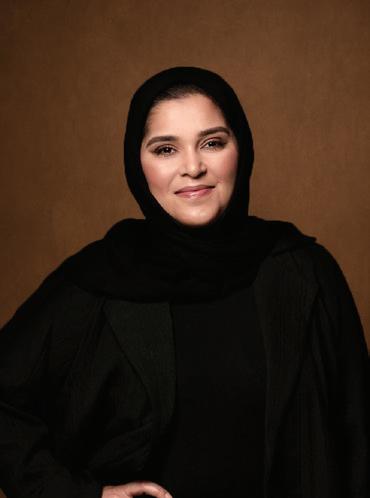

True luxury isn’t about loud displays; it’s about mindfulness, gratitude, and creating timeless connections that linger long after the flame fades.
redefining entrepreneurship by merging profit with purpose. For Rahim, empowering her mostly women-led team is as important as expanding her market. By embedding sustainability, philanthropy, and soulful storytelling into her brand, she proves that modern luxury can carry both cultural depth and social responsibility.
Rahim embodies a new kind of leadership: one where business is not separated from compassion, and where luxury is defined by how it makes people feel, not how it is perceived. “Luxury doesn’t need to be loud,” she reflects. “It needs to be felt.”
With every flame lit, Light of Sakina spreads more than fragrance. It spreads a philosophy, that true success is measured not just in growth, but in the light we pass on to others.
Naila Rahim’s vision for Light of Sakina extends well beyond the candle’s glow. She believes her brand has the potential to reshape consumer expectations of luxury in the region, turning everyday rituals into intentional, mindful experiences. For her, lighting a candle should not be a fleeting act but a transformative moment — one that grounds a person in gratitude, calm, and reflection.
Her work has resonated with a new wave of conscious consumers who prioritize meaning over materialism. Millennials and Gen Z in particular have embraced Light of Sakina for its philosophy of “quiet luxury,” where refinement comes from depth rather than display. This shift is allowing Rahim to position her brand as a leader in redefining regional aesthetics. Beyond products, Rahim is building a lifestyle ecosystem. She plans to launch immersive retail experiences where scent, sound, and storytelling merge to create sanctuaries of mindfulness in bustling cities. These spaces, she explains, will allow customers to “step into the philosophy” of her brand rather than just purchase from it.
Philanthropy continues to be central to her journey. A percentage of every sale goes toward women-led initiatives and education programs, ensuring Light of Sakina is not just a business but a movement. By embedding social good into her operations, Rahim is carving out a model for luxury brands that want to be both profitable and purposeful.
From engineering megacities to building a global fashion house, Kayane Mahrejian represents a rare kind of leadership: one that thrives equally in boardrooms, construction sites, and creative ateliers. With a career spanning three decades, she has led multi-billion-dollar projects across the Middle East, shaping airports, ports, metro systems, and iconic destinations, before stepping into the world of entrepreneurship and fashion.
Her career was forged in the high-pressure environment of Bechtel, one of the world’s most respected engineering firms. There, she managed contracts and risk for projects like the $500B NEOM Spine and the $11B Riyadh Metro, overseeing procurement frameworks, governance systems, and training thousands of staff. She later brought her expertise to Dubai Holding’s $11B Dubai Islands project and to major aviation developments in Oman and Qatar. These roles taught her a core truth: scale means little without systems, and systems mean little without people.
In 2019, Kayane turned that philosophy inward and founded Kaiane Designs, a quiet-luxury fashion label. What began as a creative venture soon grew into a global brand, with designs seen on red carpets and featured in Vogue and Harper’s Bazaar. In 2023, Kaiane Designs earned recognition from the United Nations Conscious Fashion and Lifestyle Network, marking its alignment with sustainability and conscious luxury.
By 2024, Kayane made the bold leap into full-time entrepreneurship, dedicating herself entirely to Kaiane Designs while also building tailored advisory and capability-building programs for other ambitious founders. She now leverages her global network of partners to support startups and established businesses in scaling, strengthening systems, and elevating brands.
“At heart, I am still an engineer,” she
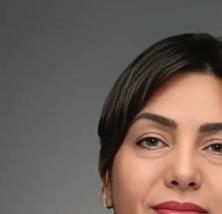





Leadership is not about
choosing between engineering or fashion — it’s about building systems
and
legacies that can stand the test of time.
says. “I build structures, systems, and careers,only now, the blueprints look different. Whether it’s infrastructure or fashion, my goal is to create something enduring.”
Her story reflects the future of leadership in the Middle East: leaders who
cross boundaries between industries, merging rigor with creativity, and ambition with purpose. From building cities to building brands, Kayane Mahrejian proves that vision knows no limits.
Kayane Mahrejian’s journey is a testament to the idea that true leadership transcends industries. Having mastered engineering at the scale of cities and infrastructures, she now applies the same rigor and foresight to the world of fashion and entrepreneurship. What distinguishes her is not only the diversity of her career but also her philosophy: systems, whether in construction or couture, must be resilient, adaptive, and purposeful.
With Kaiane Designs, she has redefined what it means to build a brand in the luxury sector. Every collection embodies sustainability, cultural intelligence, and a deep respect for craftsmanship. For Kayane, sustainability is not a trend but an ethical compass — a way of ensuring that design leaves a legacy rather than a footprint. She collaborates with artisans, integrates advanced materials, and consistently explores how luxury can coexist with responsibility. Beyond design, Kayane is deeply invested in mentorship. She has developed advisory frameworks that guide emerging founders in navigating entrepreneurship with clarity and confidence. By blending her corporate experience with creative ambition, she offers a unique perspective that few can match. Her mentorship is rooted in building foundations — governance, structure, and strategy — that ensure a venture’s survival long after its launch. Looking ahead, Kayane envisions Kaiane Designs as more than a fashion house. She sees it as a platform for elevating conversations on sustainability, women’s leadership, and cross-cultural creativity. Partnerships with international fashion councils, regional trade boards, and conscious investment groups are already under discussion, positioning her brand at the intersection of business and cultural diplomacy.
When Oksana Salamatina opened Salamatina Gallery in New York in 2008, she set out to do more than display art, she wanted to create a stage for discovery, dialogue, and daring new voices. Today, with locations in New York and Atlanta, her gallery has become a launchpad for both established and emerging artists, with exhibitions featured in The New York Times, The New Yorker, Art News, and Sculpture. The gallery’s artists have gone on to exhibit at institutions such as the Smithsonian American Art Museum, Centre Pompidou Paris, Tretyakov State Gallery in Moscow, and SF MoMA. Oksana’s path to the art world reflects her own multidisciplinary sensibility. She began her career at Sotheby’s and Christie’s, later collaborating on exhibitions at the New Museum and the Nassau County Museum of Art. With dual Master’s degrees — in International Economics and Art Gallery Administration — and as a recipient of the Guggenheim Scholarship at the Peggy Guggenheim Collection in Venice, she brings both intellectual rigor and global perspective to her work. Her gallery is known for its minimalist yet deeply intentional approach. Programming often goes beyond gallery walls into collaborations with museums and cultural institutions — from the Venice Biennale to the Arab American National Museum. Historical surveys, retrospectives, and site-specific installations run alongside experimental works, reflecting Oksana’s belief that contemporary art must balance heritage with innovation.
But her vision extends beyond the market. A former model with a lifelong appreciation for design, she blends fashion, philanthropy, and art seamlessly. Salamatina Gallery has hosted charitable events in support of the American Heart Association, Autism Speaks, and the Breast Cancer Research Foundation. As an author, she has published books including Last March and On the Edge of a Dream — with the latter tied to a landmark exhibition of Roberto


















































Art is not spectacle; it is dialogue — a canvas for humanity that bridges cultures, sparks empathy, and inspires change.
Matta at the Hermitage Museum in St. Petersburg.
Her personal taste is as eclectic as it is refined. Works like Kazimir Malevich’s Black Square, Demi’s Black Little Angel, and Graham Dean’s watercolors inspire her with their boldness and emotional resonance. For Oksana, these choices reflect her core philosophy: art is not about spectacle, but about what
lingers in the soul.
Today, Oksana Salamatina stands as more than a gallerist — she is a connector, a curator of experiences, and a champion of authenticity. With every exhibition, collaboration, and project, she proves that contemporary art is not simply about being seen — it is about being felt.
For Oksana Salamatina, art is more than creation — it is dialogue. Since founding Salamatina Gallery, her vision has been to create spaces where voices, perspectives, and cultures converge. Her galleries in New York and Atlanta have become incubators for bold artistic expression, showcasing both established and emerging talents, while also serving as cultural bridges between East and West.
What sets Oksana apart is her insistence that art must engage with society. Through exhibitions that tackle themes of climate change, mental health, and identity, her gallery has become a platform for conversations that extend far beyond aesthetics. She sees art as a tool for reflection, empathy, and even activism, reminding audiences that creative expression has the power to influence public consciousness.
Her own multidisciplinary background reinforces this belief. From modeling to writing to curating, Oksana embodies the fluidity of modern creativity. She leverages her diverse experiences to build exhibitions that are not only visually compelling but also intellectually rigorous. For her, curating is not about spectacle but about cultivating meaning.
Oksana’s philanthropic spirit is woven into her gallery’s DNA. Over the years, she has directed resources toward causes such as autism awareness, cancer research, and women’s empowerment. Each collaboration reflects her philosophy that cultural leadership must be paired with social responsibility. She often describes her gallery as “a canvas for humanity” — a place where art is not confined to walls but spills into communities, sparking connection and change.
In an industry often defined by exclusivity, Mona Husain is rewriting the rules of beauty, wellness, and lifestyle. A psychologist, A-Level Psychology teacher, influencer, and now CEO, she brings a rare blend of intellect, empathy, and entrepreneurial drive to a space that is rapidly evolving. Her mission is bold yet simple: to make premium-quality essentials accessible without compromising on elegance or authenticity.
From the UAE, where her brand was first born, Mona has built a label that stands shoulder-to-shoulder with global names while remaining deeply rooted in regional identity. What sets her apart is her ability to merge aspiration with accessibility. For her, luxury is no longer about unattainable price tags or niche exclusivity, it is about creating products that elevate everyday life, offering quality, beauty, and wellness to all who seek it.
At the heart of this mission is Affosentials – Affordable Essentials, a UAEborn brand redefining modern luxury in the everyday. Built on the philosophy that premium quality should be accessible to all, Affosentials offers beauty, wellness, and lifestyle products that rival global names while remaining proudly affordable. From its roots in the Emirates to its growing presence in international markets, the brand is building a reputation for elegance, innovation, and purpose-driven design. More than a product line, Affosentials represents a movement, one that empowers people to embrace everyday luxury with confidence and intention.
Her vision has already transcended borders. Today, Mona’s work is expanding into key international markets, positioning her brand as a contender in the global luxury landscape. This expansion reflects not just business growth, but her unwavering belief that the UAE can serve as a launchpad for brands with worldwide influence.
Beyond her role as CEO, Mona is also a thought leader and influencer, using her
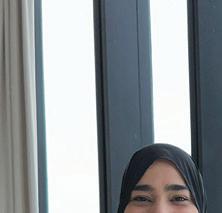
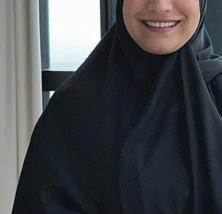


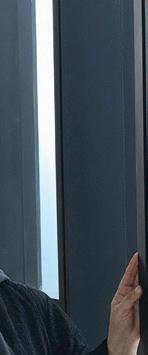
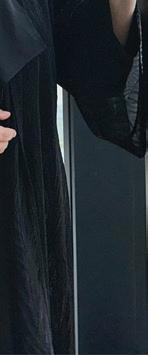
Luxury today is not about exclusivity — it is about accessibility, confidence, and the power to feel beautiful every day.
platform to champion women entrepreneurs, share insights on business and lifestyle, and inspire a new generation of leaders. She exemplifies how women can redefine industries by combining purpose with ambition, intellect with creativity, and commerce with community.
In her journey, Mona has proven that luxury doesn’t need to be exclusive, it
can be inclusive, meaningful, and transformative. Her work reflects a broader shift in consumer culture: where brands are expected not just to sell, but to inspire, educate, and empower.
As she continues to scale her brand and amplify her message, Mona Husain is not just building a business, she is shaping a movement. One that places women at the forefront of innovation, and redefines what it means to live beautifully in today’s world.
Mona Husain’s philosophy of redefining everyday luxury is also rooted in inclusivity. While traditional luxury brands often focus on exclusivity, she believes true influence comes from creating accessibility without sacrificing refinement. Her brand, Affosentials, is building a global identity as the go-to for essentials that merge wellness, beauty, and affordability.
Her strategy is deeply data-driven, studying consumer behavior across diverse markets to anticipate needs. Mona is quick to recognize that luxury today is less about ownership and more about experience — people seek value in how products make them feel, not just how they look. This insight has guided Affosentials’ expansion into beauty, personal care, and wellness categories that appeal to aspirational consumers worldwide.
Innovation remains at the core of her leadership. She is investing in research to explore bio-based ingredients, sustainable packaging, and tech-enabled retail experiences. By doing so, she ensures Affosentials aligns with evolving global standards while still carrying a uniquely regional identity. Beyond business, Mona is passionate about empowering women leaders across the UAE. She actively mentors young entrepreneurs and frequently speaks at forums about the intersection of business, psychology, and leadership. For her, success is not measured in profit alone but in impact — whether it’s a customer feeling more confident or a young founder finding her voice.
Redefining Everyday Luxury with Joubijoux
In 2024, Elise Bitar transformed her fourteen-year career in the world of luxury jewelry and watches into a bold new venture: Joubijoux, a Dubai-based fine jewelry brand that brings playfulness and versatility into the heart of modern luxury. Born in Lebanon and now based in Dubai, Elise has always been captivated by the emotional power of jewelry, not just as adornment, but as a reflection of identity, memory, and joy. Before founding her own label, Elise honed her craft working with some of the world’s most prestigious jewelry and watch maisons. This experience gave her an insider’s view of timeless design, artisanal quality, and the symbolic value fine jewelry holds for people across cultures. But she also saw a gap: jewelry was often reserved for special occasions, locked away until weddings, anniversaries, or celebrations. Elise envisioned something different, jewelry designed to be lived in, infused with lightness, joy, and everyday wearability. With 18k gold, VS clarity diamonds, sapphires, and vibrant enamel, Joubijoux pieces are crafted to be stacked, mixed, and enjoyed daily. Elise’s philosophy is clear: fine jewelry should not be confined to a box, but woven into the rhythm of everyday life. Her signature collections, including Kaleido, Slopes, and Facets, embody this spirit, celebrating elegance with a playful edge that empowers women to express themselves freely.
The brand’s very name reflects its ethos. “Jou,” meaning joy in French, captures the delight Elise infuses into every design, while “bijoux” speaks to the timeless artistry of jewelry itself. Together, they form a label that transforms everyday moments into celebrations of beauty and self-expression. At the core of Joubijoux lies a deep commitment to sustainability and responsible luxury. From ethically sourced diamonds to carefully selected materials, Elise ensures each creation honors both craftsmanship and conscience. Every piece is produced by

























Jewelry is not just about precious materials — it is about the stories and emotions we carry with us every day.
skilled artisans with meticulous attention to detail, carrying not only the mark of elegance but also the values of respect for people and the planet. For Elise, jewelry is more than just decoration, it is art, memory, and empowerment. Her vision for Joubijoux is to make every piece a companion, one that adds a spark of creativity and joy to daily life. With new collections, cre-
ative collaborations, and international outreach on the horizon, Elise continues to shape Joubijoux into a global name, proving that luxury is not just about precious materials, but about the stories and emotions they carry.
Elise Bitar’s vision for Joubijoux goes beyond crafting jewelry; she is building a movement around storytelling and self-expression. Her designs are a celebration of individuality, with each piece reflecting a narrative rather than merely ornamentation. Elise believes jewelry should be an intimate expression of one’s journey, carrying emotional weight that lasts far longer than trends.
Her background, working with some of the world’s leading jewelry maisons, gave her a global perspective. Yet, she chose Dubai as her base because of its unique position as a crossroads of culture and commerce. For Elise, the city represents the perfect canvas for Joubijoux — a place where heritage meets innovation and where global consumers converge.
Joubijoux is also pioneering in its embrace of sustainability. From ethically sourced stones to artisanal collaborations, Elise ensures that every creation honors both beauty and responsibility. She often says that luxury must reflect conscience as much as creativity, and this principle guides her production practices.
Looking forward, Elise is preparing to scale her brand globally, with plans to enter Europe, Asia, and North America through strategic retail and digital expansions. She also aims to collaborate with artists and designers across mediums, bringing fresh perspectives into jewelry design and redefining how luxury brands connect with audiences. For Elise, jewelry is more than a product — it is a vehicle for empowerment. She believes women should feel not only adorned but also affirmed by what they wear. Each Joubijoux piece is designed to resonate with modern women who see beauty as part of their strength, resilience, and joy.




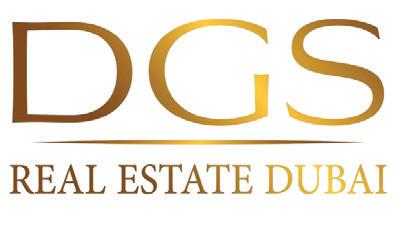
In August 2025, Gartner released its much-anticipated Magic Quadrant for Container Management, positioning Huawei Cloud firmly in the Leaders quadrant. This milestone reflects not only Huawei’s technical expertise but also its long-term investments in Cloud Native 2.0, a strategic vision reshaping the global cloud landscape.
Huawei Cloud has pioneered several cutting-edge container products, including CCE Turbo, CCE Autopilot, Cloud Container Instance (CCI), and Ubiquitous Cloud Native Service (UCS). Together, these tools provide enterprises with an end-toend, cloud-native infrastructure capable of handling large-scale, containerized workloads across public, distributed, hybrid, and edge environments. In Gartner’s assessment, Huawei Cloud emerged as highly competitive across all major use cases, from modern cloud-native applications and AI-driven containers to hybrid and edge deployments. Driving Innovation Through Open Source

One of Huawei Cloud’s most distinctive strengths is its deep commitment to open-source collaboration. As a long-standing contributor to the Cloud Native Computing Foundation (CNCF), Huawei has played an instrumental role in shaping the container ecosystem globally. The company has participated in 82 CNCF projects, holds 20+ maintainer seats, and is notably the only Chinese provider with a vice-chair position on the CNCF Technical Oversight Committee (TOC).
Beyond participation, Huawei has donated multiple landmark projects to CNCF, among them KubeEdge, Karmada, Volcano, and Kuasar. It has also contributed innovative benchmarks such as Kmesh, openGemini, and Sermant, pushing forward industry standards in 2024. This strong track record underscores Huawei Cloud’s role not just as a vendor but as a shaper of the cloud-native movement worldwide.
Huawei Cloud’s leadership extends beyond innovation into tangible, high-impact deployments across industries. From internet platforms to finance, manufacturing, automotive, and energy, Huawei Cloud’s container services have proven indispensable.

Take STARZPLAY, the OTT platform serving the Middle East and Central Asia. By leveraging Huawei Cloud CCI to transition into a serverless architecture, STARZPLAY successfully handled millions of requests during the 2024 Cricket World Cup, while simultaneously reducing infrastructure costs by 20%.
In Saudi Arabia, Daily Food— parent company of popular chain Maestro Pizza,deployed its applications on Huawei Cloud’s CCE platform. The result was an impressive 99.99% business continuity, preventing annual revenue losses amounting to millions of SAR, while ensuring system resil-


ience and operational stability.
These case studies reveal how Huawei Cloud isn’t just driving theoretical innovation,it’s delivering measurable business value in high-demand, customer-facing environments.
As enterprises enter the age of AI, Huawei Cloud has gone further by embedding intelligence into its cloud-native offerings. With Cloud Native 2.0, the company is building a next-generation AI-native infrastructure, enabling organizations to supercharge their AI workloads. At the heart of this transformation are CCE AI clusters,the backbone of Huawei’s CloudMatrix384 supernodes. These clusters bring unique features such as topology-aware scheduling, AI-aware auto-scaling, PD separation scaling, and ultra-fast container startups, significantly accelerating both AI training and inference. The result is a dramatic boost in efficiency for companies harnessing large-scale AI. In addition, Huawei has introduced CCE Doer, a breakthrough AI-powered assistant for container management. By integrating intelligent agents across the container lifecycle, CCE Doer offers real-time Q&A, proactive recommendations, and automated diagnostics. It can detect and resolve over 200 critical exception scenarios with more than 80% accuracy, empowering businesses to achieve intelligent, automated cluster management at scale.
Another frontier Huawei is advancing is serverless cloud-native technology. With CCE Autopilot and Cloud Container Instance (CCI), users can now focus purely on application development, without being burdened by backend infrastructure complexity. Recently, Huawei expanded its offerings with general-computing-lite and Kunpeng general-computing serverless containers. These innovations boost computing cost-effectiveness by up to 40%, offering businesses flexible solutions that can scale effortlessly during spikes in demand,whether from seasonal surges or sudden global events.
Huawei Cloud’s recognition in Gartner’s Magic Quadrant is more than an industry accolade,it is a testament to the company’s role as a global enabler of transformation. By integrating AI, cloud-native technologies, and opensource collaboration, Huawei Cloud is building infrastructure that is not only innovative but also inclusive and resilient.
As businesses embrace the digital economy, Huawei’s container technologies are becoming the silent backbone of transformation, powering entertainment platforms, financial ecosystems, manufacturing chains, and mobility solutions. Its vision of Cloud for AI and AI for Cloud reflects a future where intelligence and scalability are seamlessly intertwined.
With its broad adoption across industries and its commitment to open innovation, Huawei Cloud is not just redefining container management,it is reshaping how the world approaches digital infrastructure. The Leaders quadrant recognition is thus not just Huawei’s achievement, but a signal of the industry’s direction: toward a world where cloud-native, AI-driven, and serverless infrastructures form the foundation of global digital growth.







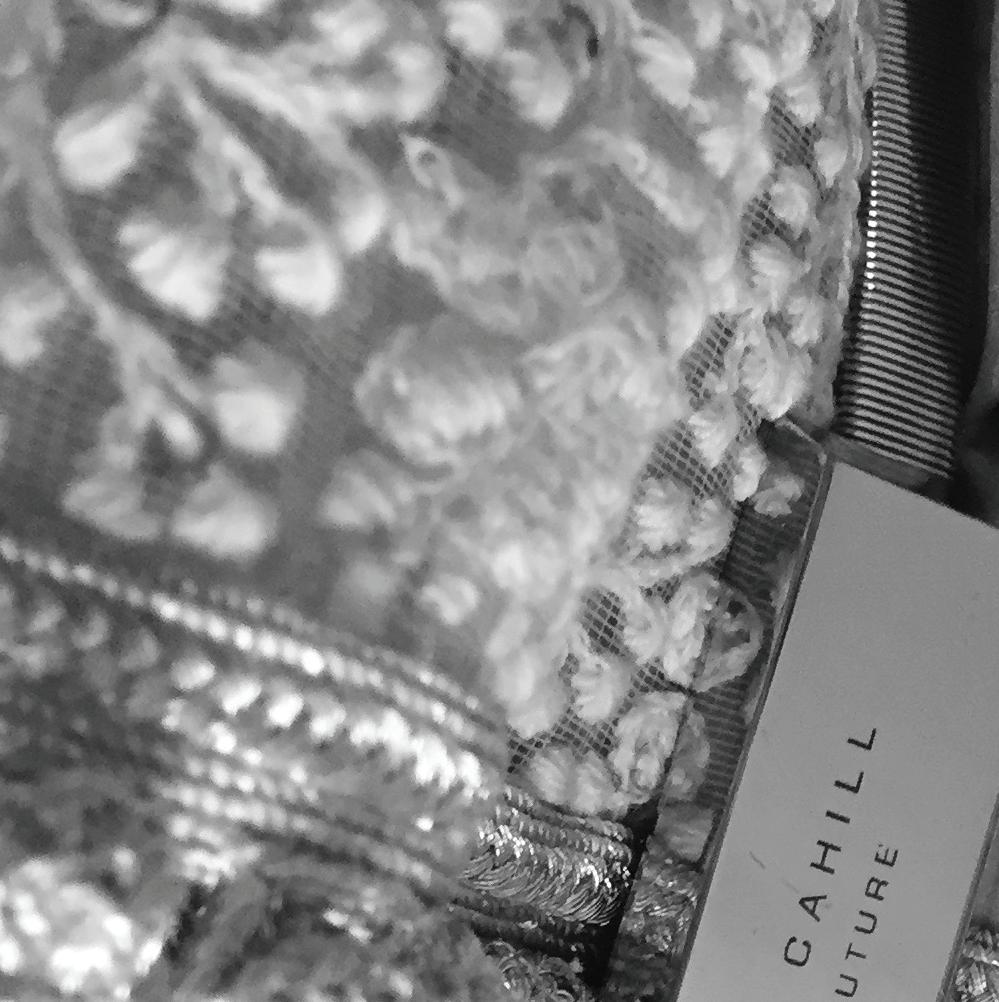
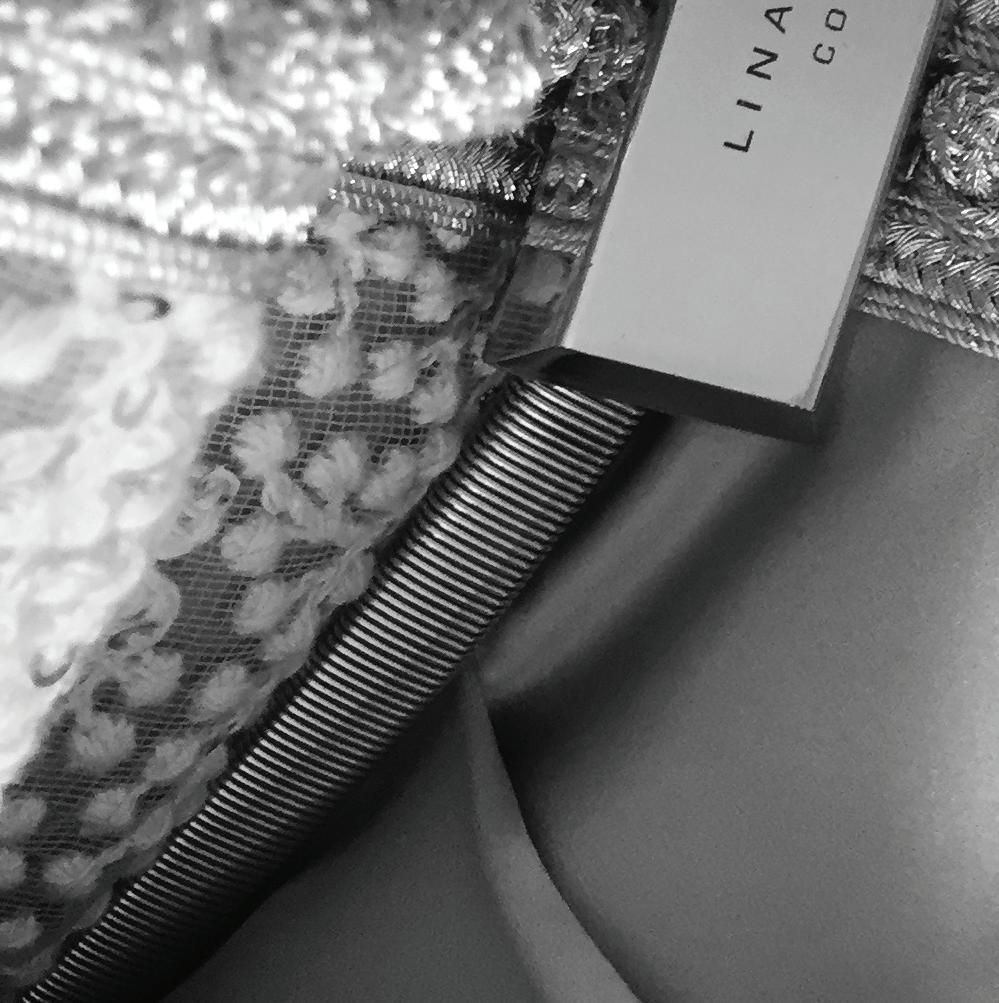
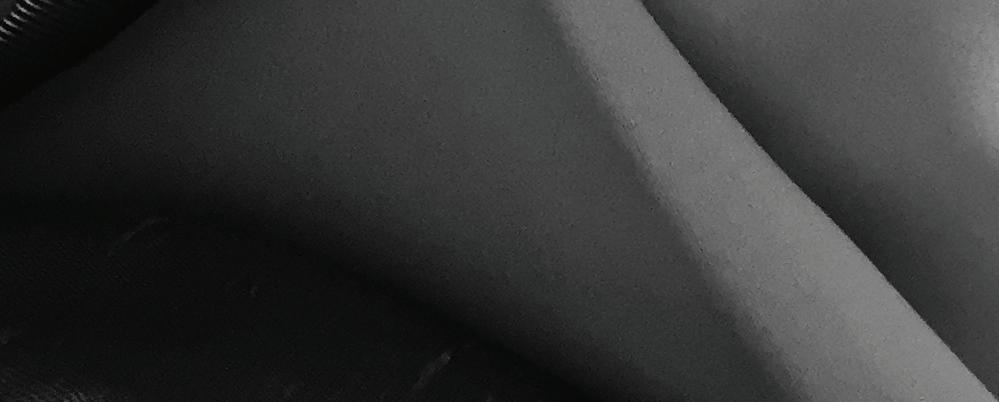



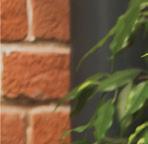

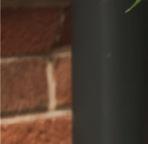

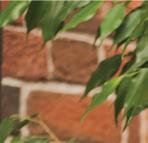
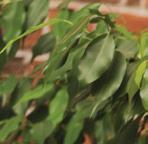


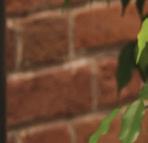
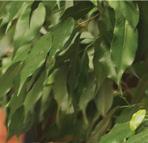









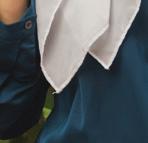
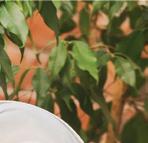


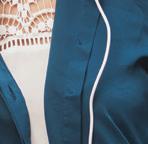














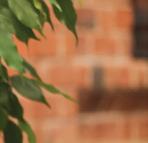




In today’s high-pressure world, where women are building businesses, leading teams, and balancing multiple roles, the definition of success is rapidly expanding. It’s no longer just about financial milestones or professional recognition,it’s about sustaining the self that makes all of this possible. More than ever, health is emerging as the truest form of wealth.
For women leaders and professionals, health is not just a personal priority; it’s a strategic advantage. It fuels creativity, sharpens decision-making, and provides the stamina needed to thrive in spaces that often demand more than they give back.
Healthcare is evolving, and so is the way women approach it. A growing shift toward preventive wellness is changing the landscape. Instead of waiting for burnout or illness to strike, women are investing in proactive health,early diagnostics, hormone checks, personalized nutrition, and holistic therapies.
Treating health check-ins with the same seriousness as boardroom meetings may feel unusual at first, but it’s the kind of cultural reset that keeps high-achieving women from collapsing under invisible pressures. Prevention is empowerment, and it allows women to lead with energy instead of exhaustion.
Physical health may get more visibility, but mental resilience has become the new form of luxury. Women often carry a dual weight,professional responsibility and personal expectations,and the mental load is immense.
Here’s where tools like mindfulness, digital boundaries, and intentional rest play a vital role. Neuroscience shows that rested brains make better decisions, meaning that downtime isn’t wasted—it’s an investment in sharper strategy and creativity. Choosing to rest, reflect, or disconnect is no longer indulgence,it’s leadership in practice.
Interestingly, many global wellness trends trace back to ancient practices that women worldwide grew up seeing in their homes. Herbal infusions, spiritual grounding, community gatherings for emotional support,all of these carry timeless wisdom.
Blending such traditions with modern science can help women craft personalized wellness rituals that honor both heritage and innovation. From sipping calming teas to practicing daily gratitude, this mix of old and new empowers women to approach health not as a trend but as a way of life.
Health doesn’t have to mean a total lifestyle overhaul. It’s about small, intentional choices that stack up over time. Here are strategies many women leaders are adopting: Micro-movements: A five-minute stretch, a walking call, or a quick yoga flow between tasks.
• Nutritious swaps: Replacing processed snacks with nuts, fruit, or herbal teas that sustain energy.
• Tech for health: Wearables and apps that track sleep, stress, and cycle health for actionable insights.
• Transition rituals: Setting boundaries between work and personal life,like journaling, a short walk, or quiet reflection at day’s end.
These small shifts create a foundation of energy and clarity, making bigger goals more sustainable.
Ultimately, the way women care for themselves ripples outward. Prioritizing health is not a retreat from ambition,it’s the fuel for it. A woman who chooses well-being not only ensures her own resilience but also sets an example for her family, colleagues, and the next generation of leaders. Health, then, is not just self-care, it is legacy care. When women invest in their well-being, they don’t just build careers or companies; they build movements that last far beyond them.






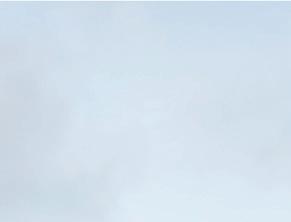




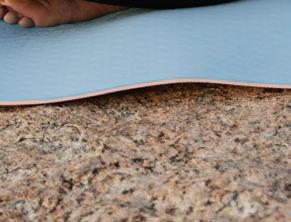




In the ever-evolving world of financial markets, Tabinda Sanpal stands out as more than just a strategist. She is a builder of ecosystems, a champion of transparency, and a woman rewriting the rules of financial leadership in the Middle East. As the Director and sole shareholder of ANAX Capital Financial Markets LLC, Tabinda is reshaping the landscape of trading and investment by combining technology, trust, and human-centered leadership.
Tabinda’s journey began with a global lens. Educated in the United Kingdom, she earned her Bachelor’s degree in Business and Finance before obtaining the prestigious CISI certification in FCA Rules and Regulations. This rigorous foundation gave her a nuanced understanding of regulatory frameworks, structured financial products, and risk-based investment strategies.
Her early career took her across trading, investments, and real estate — both onshore and offshore — where she mastered the complexities of wealth management, compliance, and cross-border operations. It was here she noticed a glaring gap: the lack of credible, transparent, and tech-enabled platforms to serve both institutional and everyday investors in MENA and South Asia.
This gap became the seed of her vision: to democratize access to financial opportunity.
Tabinda’s leadership philosophy rests on three pillars: discipline, diligence, and empathy. For her, finance is not about numbers alone — it is about people. She is an advocate for: Women in finance and leadership
• Technology-enabled transparency
• Ethical investment management
Her approach is long-term and value-driven, ensuring governance, scalability, and investor protection at every level. More than profits, she focuses on building a culture of integrity, ownership, and continuous learning. “Finance should serve people — not the other way around,” she emphasizes.
Under Tabinda’s direction, ANAX Capital Financial Markets LLC has entered the UAE’s competitive financial services
space with strength and clarity. Regulated by the Securities and Commodities Authority (SCA), ANAX offers retail and institutional trading across forex, commodities, equities, and indices. Its platforms, including MetaTrader 5 and CQG, serve both everyday investors and advanced institutional traders.
At its core, ANAX is built to be seamless, secure, and scalable. From AI-enabled onboarding systems and integrated liquidity solutions to FIX APIs for algorithmic trading, Tabinda is ensuring ANAX blends local regulatory strength with global execution quality.
Her mission is simple yet ambitious: to make financial empowerment accessible, intuitive, and trustworthy.
In May 2025, ANAX made its mark with a high-profile launch at Palazzo Versace Dubai, attended by celebrities including Tiger Shroff, Myriam Fares, Nora Fatehi, and Sonu Nigam. For Tabinda, the event was not just about glamour — it was about signaling readiness.
“It’s a proud and emotional moment,” she shared. “This launch represents months of hard work and belief in an idea that’s now come to life. We’re entering the market with a strong foundation, backed by capital and a clear commitment to service.”
Her words reflect both strategic foresight and emotional depth — the balance that defines her leadership.
While Tabinda commands boardrooms and builds financial institutions with precision, her most cherished role is that of mother to her daughter, Isabella. She navigates the dual worlds of entrepreneurship and motherhood with resilience and grace, embodying the modern archetype of a leader who is as nurturing as she is strategic.
Whether structuring investment funds or soothing midnight lullabies, Tabinda demonstrates that leadership does not have to come at the cost of love. Instead, it can be whole, human, and inspiring.
Her ability to drive billion-dirham visions while cherishing motherhood redefines what it means to be a woman in finance.


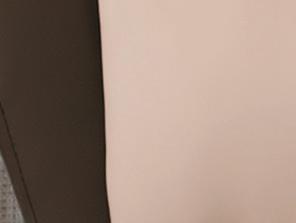



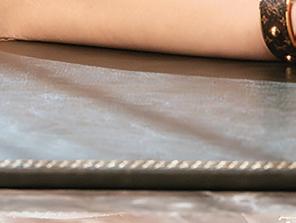
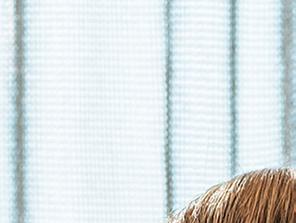









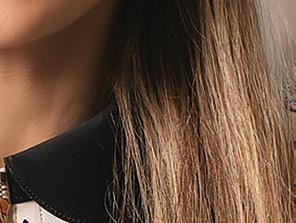
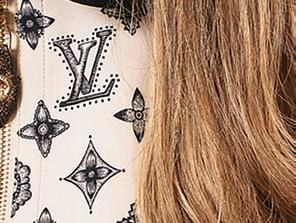







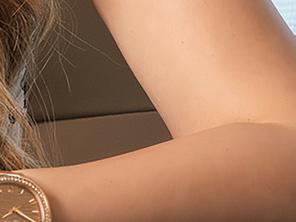











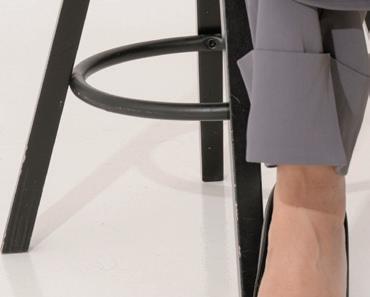
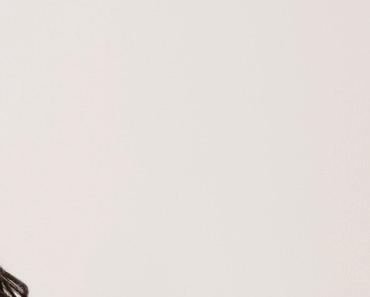
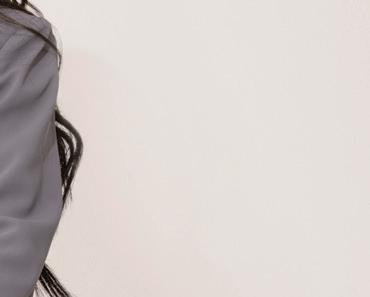

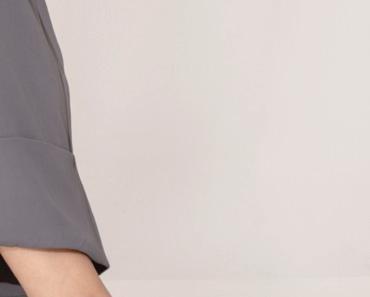



In a world where entrepreneurship often moves at breakneck speed, Layla Al-Hajjaj stands out for her ability to build with both strategy and soul. A Saudi entrepreneur, mentor, and content creator based in the UAE, Layla has become a powerful example of what it means to lead businesses with clarity, purpose, and heart. Her ventures — Boho Salon, FRQNCY, and SAGE — are not just brands, but reflections of her deeper mission: to create spaces that nurture beauty, well-being, and conscious leadership.
Layla’s journey began in the corporate world, where she spent six years in oil and gas before moving into the non-profit sector as Programs Director at the Special Olympics. These roles gave her both structure and perspective — teaching her the importance of operational discipline while also showing her the transformative power of community.
“Corporate life taught me systems, but the non-profit sector taught me humanity,” Layla shares. This unique combination became the foundation for her next chapter: building businesses that serve people as much as profit.
In 2019, Layla founded Boho Salon, a boutique concept that quickly grew into one of the UAE’s most celebrated names in beauty and wellness. Her vision was clear — to create a space that prioritizes well-being while offering premium services. With toxin-free, cruelty-free products and a focus on sustainability, Boho introduced clients to a new kind of luxury: one that cares for the planet as much as it does for personal style.
But beyond products and services, Boho is about culture. Layla has built a team environment that is inclusive, empowering, and people-first. For her, success lies in the ripple effect of confidence and positivity Boho creates, not just in the number of branches it operates.
Always forward-thinking, Layla launched FRQNCY in 2024 — a bold concept blending hair artistry with energy healing. More than a salon, FRQNCY represents a philosophy: that true transformation starts at the roots, both literally and figuratively.
This venture reflects Layla’s ability to tap into cultural shifts
before they become mainstream, creating spaces that speak to deeper human needs. It’s an approach that sets her apart as not just an entrepreneur, but a visionary attuned to the evolving spirit of her community.
Alongside her beauty ventures, Layla founded SAGE, a business management and mentorship company supporting service-based entrepreneurs. Through SAGE, she provides practical tools for financial clarity, operational systems, and marketing — but also focuses on the often-overlooked emotional side of entrepreneurship.
“Entrepreneurship is not just about chasing success; it’s about sustaining it,” she says. With this mindset, Layla is helping a new generation of entrepreneurs build businesses that are not only profitable, but resilient and human-centered.
What sets Layla apart is her leadership style: intentional, empathetic, and grounded in values. She speaks openly about challenges as well as achievements, creating a culture of honesty and relatability. By blending strategic intelligence with emotional awareness, she has created a leadership approach that is as human as it is effective.
For women entrepreneurs in the Arab world, Layla’s example is particularly powerful. She proves that ambition does not have to come at the expense of authenticity — and that success is most meaningful when it uplifts communities along the way.
Looking ahead, Layla’s vision extends far beyond scaling businesses. She sees her role as part of a broader movement to inspire conscious entrepreneurship across the region. Through her ventures and mentorship, she hopes to leave behind not just thriving brands, but a legacy of empowerment, resilience, and purposeful leadership.
In every sense, Layla Al-Hajjaj is not simply building businesses. She is creating ecosystems of beauty, well-being, and growth — proving that leadership, at its best, is not about being the first or the fastest, but about building with intention and leaving behind impact that lasts.
In the vibrant city of Dubai, where ambition meets innovation, Galiya Kerimkulova has carved out a unique path as both a business leader and cultural entrepreneur. She is the founder of two thriving ventures,DGS Real Estate and Bellcanto Vocal Studio, each reflecting different sides of her vision, yet bound by the same purpose: to empower, to create, and to inspire.
As CEO of DGS Real Estate, Galiya leads one of Dubai’s most dynamic brokerages, specializing in premium properties and tailored investment solutions. In a city that has become a global destination for business and lifestyle, her firm stands at the intersection of opportunity and trust. For local buyers, international investors, and global entrepreneurs, Galiya and her team offer more than property transactions, they provide strategic guidance, market insight, and confidence. She sees real estate as more than bricks and mortar. To her, it is a tool for building stability, legacy, and financial freedom.
“Every investment tells a story,” she explains. “It’s about creating a future, securing value, and aligning opportunities with dreams.”
Her leadership style in real estate mirrors Dubai itself: ambitious, fast-paced, and forward-looking. With a focus on premium developments, sustainable projects, and long-term growth, DGS Real Estate has become a trusted name among clients who seek excellence with personal care.
While real estate reflects her strategic mind, Bellcanto Vocal Studio embodies her creative soul. Founded as a luxury space for music, artistry, and self-expression, Bellcanto is more than a vocal training studio, it is a sanctuary for confidence, creativity, and connection.
Here, Galiya champions the idea that every voice has power. Whether through professional coaching, luxury recital experiences, or tailored vocal programs, Bellcanto nurtures individuals to embrace their uniqueness and express themselves fearlessly.
“Your voice is your identity,” she says. “It’s how you connect, how you inspire, how you lead. Bellcanto is about helping people find and strengthen that voice, in music and in life.”
This duality, leading in business while fostering creativity, reflects Galiya’s conviction that success is not about choosing one path but weaving together different passions.
Redefining Leadership in Dubai
As a woman entrepreneur in one of the world’s most
competitive cities, Galiya’s journey is both trailblazing and deeply personal. She understands the challenges women face in leadership, from balancing roles to navigating traditionally male-dominated industries. Rather than being discouraged, she has turned these challenges into her driving force. Her leadership philosophy is simple yet profound: invest wisely, build boldly, and lead with authenticity. She empowers women to see themselves as capable of both strategic and creative excellence, reminding them that they can build legacies without sacrificing individuality.
Galiya’s work embodies a bridge between commerce and culture. On one hand, she is shaping Dubai’s real estate future by guiding investors and clients toward impactful opportunities. On the other, she is nurturing artistic expression and creating a space where people can connect with themselves on a deeper level.
This balance makes her stand out as a modern entrepreneur who values not only financial growth, but also emotional and cultural enrichment. She demonstrates that business and artistry, investment and creativity, can thrive side by side, and even strengthen one another.
For Galiya, success is not measured by titles or wealth alone, but by the impact she leaves behind. Through DGS Real Estate, she empowers individuals and families to build secure futures. Through Bellcanto, she inspires people to embrace their voices and live authentically. And through her own story, she motivates women across the region to step into leadership with courage.
Her vision is clear: to continue expanding her ventures while mentoring and inspiring the next generation of entrepreneurs. “When you build with purpose,” she reflects, “you’re not just shaping businesses or properties, you’re shaping lives.”
Galiya Kerimkulova’s journey is proof that true leadership is not one-dimensional. It is the ability to balance strategy with creativity, commerce with culture, and ambition with authenticity. She is building futures in real estate while giving voices strength through music, and in doing so, she is redefining what it means to be a woman entrepreneur in Dubai today. With her dual ventures, she embodies the spirit of a city that thrives on innovation and diversity. And as her influence grows, one thing is certain: Galiya is not just leading businesses, she is shaping a movement of empowerment, expression, and possibility.
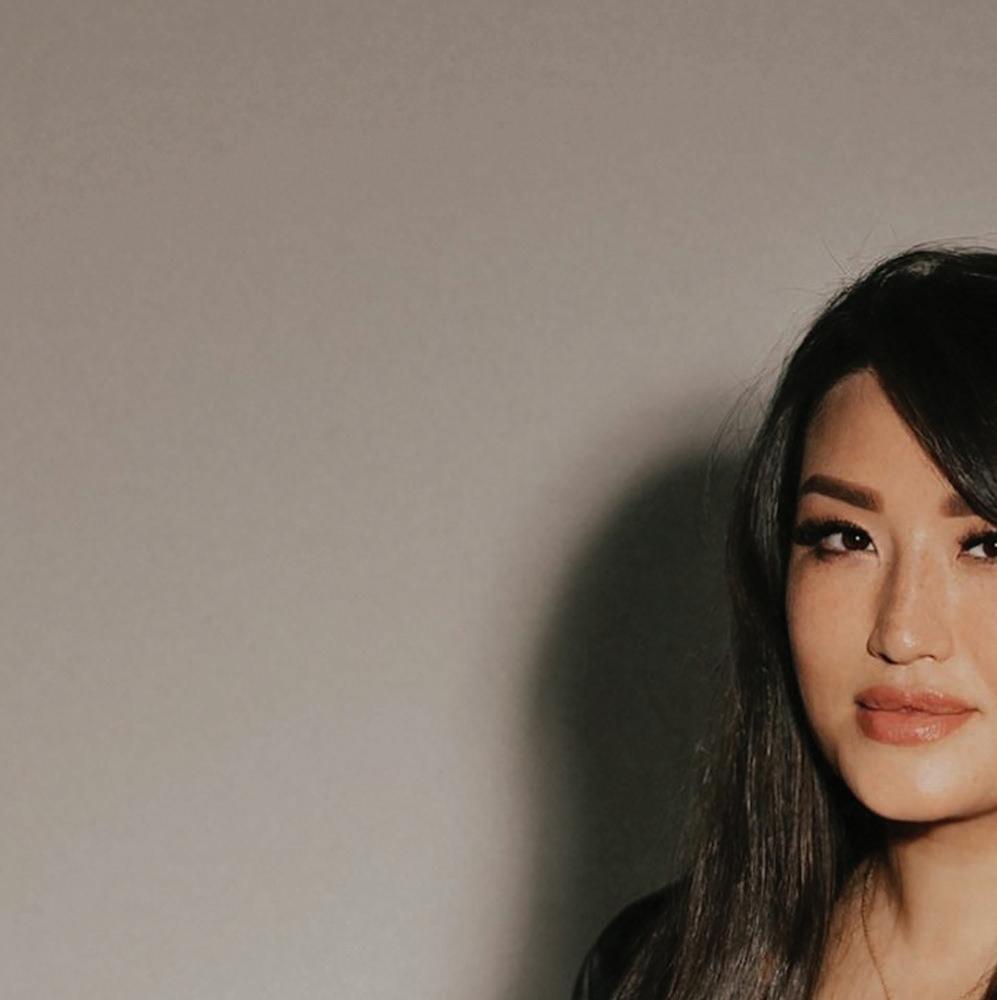


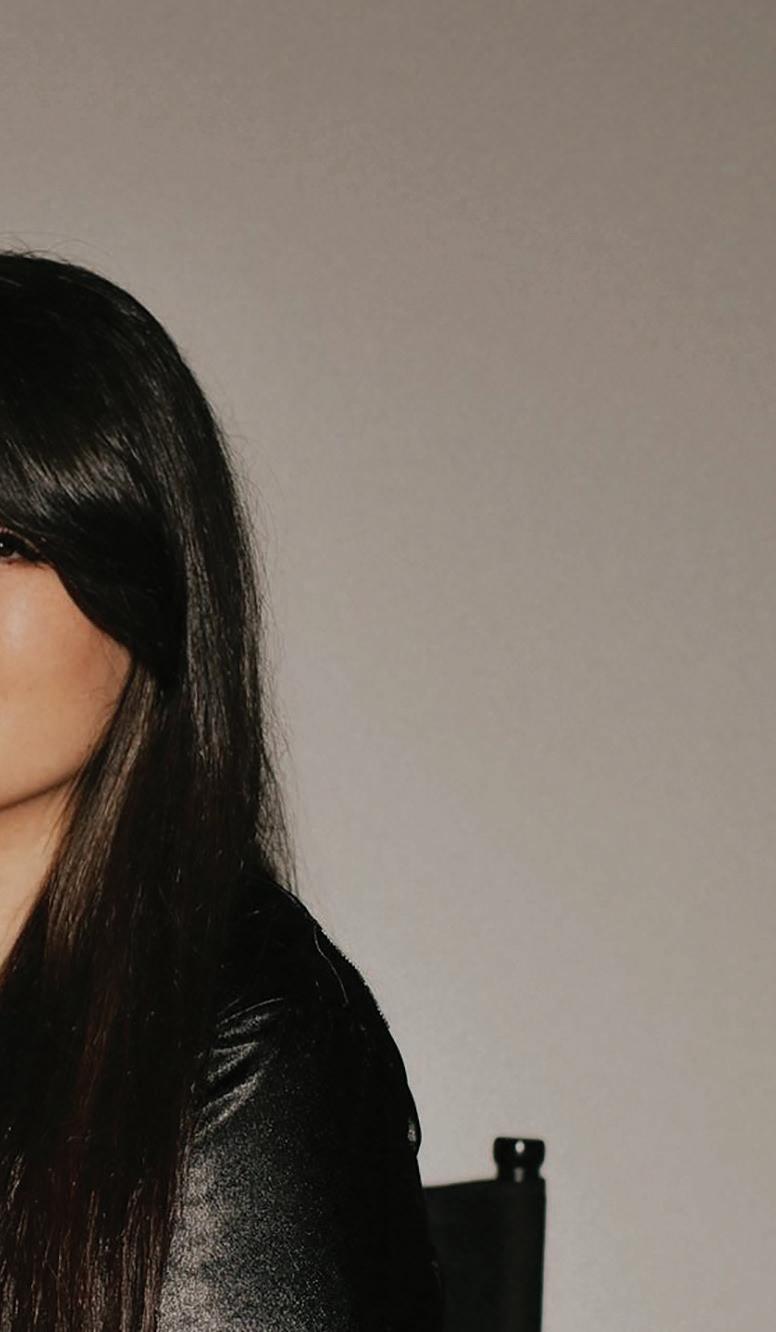







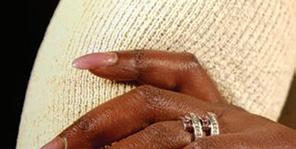

















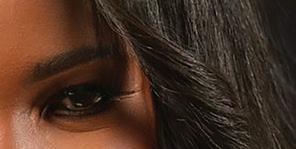



















In a business world often ruled by formulas and façades, Ellen Mannaert is rewriting the narrative with radical clarity. A serial entrepreneur, mentor, and global changemaker, Ellen’s ventures span fashion, real estate, hospitality, and wellness — but at the heart of her leadership lies one unwavering truth: success without soul is empty.
With the launch of her newest initiative, ERA OF YOU, Ellen is not just starting another business. She is igniting a movement — one that empowers individuals to shed the expectations of conformity and embrace the wholeness of who they truly are.
Ellen’s path has never been linear. Raised as a child of immigrants, she was often told she was “too Black, too quiet, too humble.” Yet instead of shrinking, she turned these labels into leadership strengths. Her early experiences taught her to see people first, lead with empathy, and create spaces where different voices feel seen and celebrated.
“I don’t build companies — I build ecosystems,” she reflects. “Spaces where people feel safe, where creativity thrives, and where authenticity becomes the strategy.”
This ethos has guided Ellen through every industry she’s touched. From scaling a textile distribution network in Europe to pivoting her fashion label Lémert toward direct-to-consumer, she has consistently dared to evolve before the world caught up. For Ellen, resilience is less about toughness and more about the dance between structure and surrender — a balance she honed working across Europe’s precision and the Caribbean’s flow.
What sets Ellen apart as a leader is her philosophy of “unbecoming” — a conscious shedding of expectations to uncover the authentic self beneath. In her businesses, this looks like questioning the rules, showing up with presence over performance, and refusing to conform to outdated definitions of power.
“Unbecoming is a spiritual practice,” she says. “It allows you to step away from what the world demands and step into what your soul desires.”
Through this approach, Ellen has built brands that are not just profitable, but purposeful. Her leadership model embraces vulnerability as strength, empathy as a tool of innovation, and authenticity as the greatest currency.
Her newest creation, ERA OF YOU, is a global platform and community designed to celebrate authenticity, nurture con-
scious growth, and empower changemakers. It is part mentorship circle, part creative incubator, and part soulful retreat — built on the belief that your story is enough, your voice matters, and your presence is power.
“We live in a world that constantly tells us to prove ourselves,” Ellen shares. “The ERA OF YOU is about slowing down, listening inward, and realizing you already are enough. Leadership isn’t about doing more — it’s about being more of yourself.”
The initiative will bring together entrepreneurs, creatives, and leaders across continents, offering spaces for dialogue, mentorship, and shared learning. In a marketplace that rewards hustle, Ellen is daring to center wholeness over grind, connection over competition.
For Ellen, women’s empowerment goes beyond visibility campaigns. It’s about access — to capital, decision-making power, and systemic ownership. She is direct: “Empowerment without infrastructure is just marketing.” Through ERA OF YOU and her ongoing mentorship, she is building those structures: funding women-led initiatives, championing intersectional inclusion, and opening doors for the next generation of multipreneurs.
Her vision of leadership is unapologetically feminine — soft yet strategic, grounded yet global. It challenges the outdated notion that power must be hard, hierarchical, or performative. Instead, Ellen’s leadership embodies collaboration, care, and conscious expansion.
From the Dominican Republic to Belgium, Ellen’s work demonstrates that scaling across continents does not mean losing authenticity. By empowering local leaders, honoring cultural nuance, and anchoring every venture in human values, she proves that business can be both global and deeply personal.
Her leadership reminds us that belonging is not found in assimilation, but in authentically showing up.
As the ERA OF YOU begins to gain momentum, Ellen Mannaert is already envisioning its ripple effect. The platform is not just about personal growth, but about reshaping collective leadership models for the future. By creating ecosystems where collaboration replaces competition, Ellen is proving that conscious business is not a utopian ideal, but a scalable reality.
Her next step is to integrate technology into this vision — digital communities, mentorship platforms, and immersive retreats that connect leaders across geographies. Yet she is adamant that technology must serve humanity, not replace it. “Connection has to be human first,” she emphasizes, reminding us that innovation without intimacy becomes hollow.

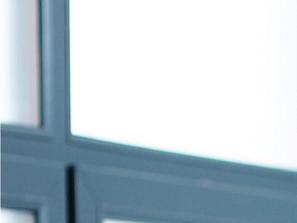




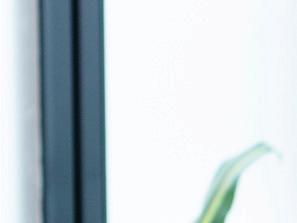




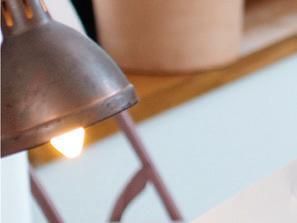





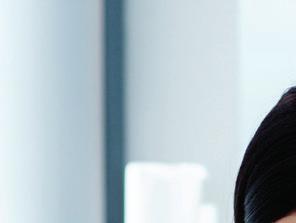
























For decades, the phrase “women at work” meant persistence against odds — breaking ceilings, balancing expectations, and proving worth in spaces that often forgot to leave room for them. Today, the narrative has shifted. Women are not only present in the workforce — they are reshaping what work itself means.
The modern workplace is no longer about simply showing up; it’s about showing up with authenticity. From boardrooms to startups, from corporate corridors to creative studios, women are not just filling roles — they are designing the blueprint of tomorrow’s workplace. A blueprint that values empathy as much as efficiency, collaboration as much as competition, and purpose as much as profit.
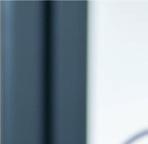








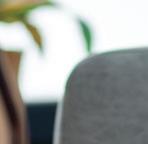

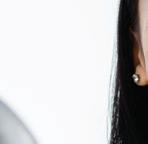



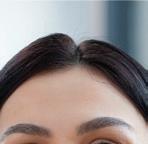



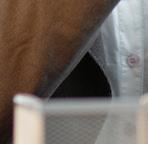
The old myth of “work–life balance” is fading. For many women, it’s no longer about walking a tightrope between two competing worlds. Instead, it’s about integration — weaving career, ambition, family, and personal growth into a single, fluid design.
This shift is visible everywhere. A corporate executive runs her weekly strategy call while working remotely from her daughter’s football practice. A young entrepreneur channels her passion for sustainability into a side venture while thriving in her full-time corporate role. A content creator builds a digital empire out of her kitchen table, turning authenticity into influence. These examples show that success for women
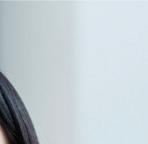





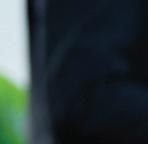
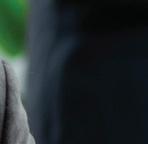












today isn’t about choosing between ambition and life — it’s about reimagining both in tandem. And workplaces are slowly catching up, with hybrid models, wellness programs, and career paths designed for flexibility rather than rigidity.
Perhaps the most inspiring development is the surge in collaboration. For too long, the spotlight glorified lone “success stories” — the one woman who made it against all odds. But the future is collective. Women are now building networks, mentorship platforms, and digital communities that don’t just celebrate wins but actively create them.
Across industries, we see circles of women exchanging resources, opening doors for each other, and reminding the world that leadership isn’t about standing alone at the top but about lifting others as you rise. Research has shown that companies with women leaders are not only more inclusive but often more profitable. The ripple effect of shared growth is rewriting the rules of power.
Women at work are proving that leadership isn’t confined to corner offices. It lives in decision-making styles that prioritize emotional intelligence, inclusivity, and agility. It thrives in team cultures where innovation is sparked by diverse perspectives.
Unlike the traditional model of leadership — hierarchical, top-down, and often rigid — women leaders are embracing a more fluid, empathetic approach. They are setting a new standard where vulnerability is strength, collaboration is power, and impact matters more than titles. This is a powerful reminder: when women lead, they don’t just lead teams — they lead change.
The future of women at work is not about assimilation into outdated molds. It’s about dismantling and redesigning them. Imagine workplaces where maternity is not seen as a career pause but a celebrated life milestone. Offices where women of all ages, backgrounds, and cultures can thrive
without needing to prove their worth twice over. Environments where mentorship flows both ways, and where women leaders create ladders for the next generation, not just stages for themselves. The transformation is already underway. But what comes next will depend on how boldly women — and the organizations that value them — continue to rewrite the rules.
“Women at work” should no longer be treated as a special category — it should be the norm. The real story today is about evolution, not entry. Women are not just rising; they are reshaping. Not just shining; they are illuminating pathways for others.
This is not merely a chapter in workplace history — it is the dawn of a new era. And the best part? It’s only just beginning.































































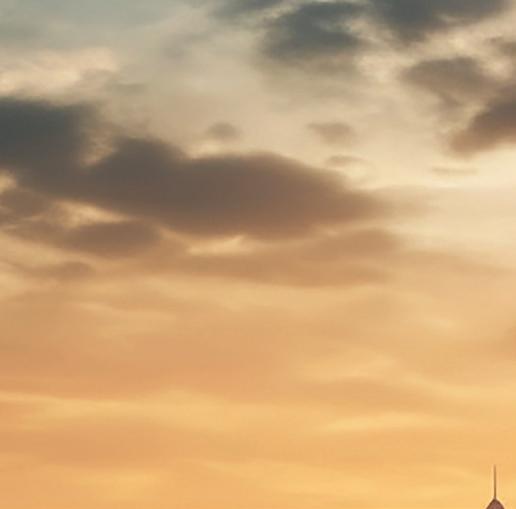


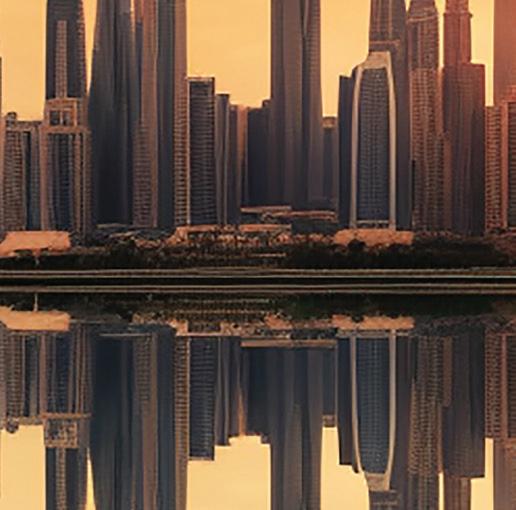

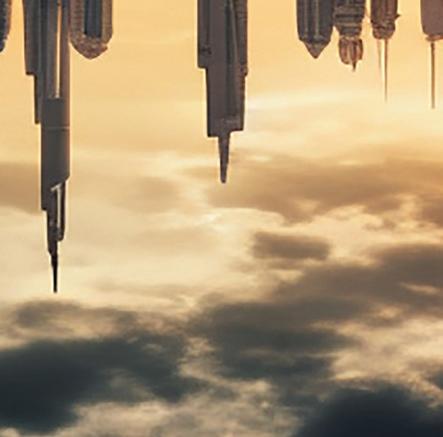





Founded in 2015 by Her Highness Sheikha Fatima bint Mubarak, Emirati Women’s Day is a day to commemorate and celebrate Emirati women. Celebrated yearly on August 28, this occasion recognises the profound impact and accomplishments Emirati women have had on UAE society, from nation-building and leadership to innovation and cultural heritage.
It is also an opportunity to reflect on progress within the country and acknowledge the crucial role women have played in achieving it. Emirati Women’s Day is one of the many ways the UAE demonstrates its commitment to gender equality—not only by celebrating women’s contributions but also by providing platforms that amplify their voices,
nurture their ambitions, and drive them toward leadership roles.
Every year, the day is observed under a specific theme. This year’s theme, “Hand in Hand, We Celebrate 50 Years”, aligns with the UAE’s national initiative, “The Year of Community”, and marks the 50th anniversary of the General Women’s Union (GWU)—established on August 28, 1975, under the visionary leadership of Sheikha Fatima bint Mubarak. She is the Founder of Emirati Women’s Day, Chairwoman of the General Women’s Union, President of the Supreme Council for Motherhood and Childhood, Supreme Chairwoman of the Family Development Foundation (FDF), and is affectionately known as the “Mother of the Nation”.
The GWU has been instrumental
in shaping policies, initiatives, and advocacy efforts that have propelled Emirati women to the forefront of the UAE’s transformation story. Over the decades, its mission has spanned education, political participation, economic empowerment, and cultural preservation, ensuring that women have an equal stake in building the country’s future.
Aligned with President His Highness Sheikh Mohamed bin Zayed Al Nahyan’s proclamation of 2025 as the “Year of Community”, this year’s Emirati Women’s Day underscores the importance of unity, partnership, and shared responsibility. The message is clear: a nation thrives when women and men work hand in hand toward a shared vision of progress.
Today, Emirati women are a powerful force in public life: 50% of seats in the Federal Na-



tional Council are held by women, achieving parliamentary parity. 27% of the UAE Cabinet is comprised of women ministers.
Women make up 20% of the diplomatic corps and have served as ambassadors, consuls general, and permanent representatives to the United Nations.
They lead in diverse sectors, from STEM and space exploration to finance, law, media, and entrepreneurship.
The UAE’s Gender Balance Council has been at the helm of policy innovation, ensuring equality in decision-making roles and reducing gender disparities in every government sector. These achievements have placed the UAE among the top global performers for female political representation and empowerment.
Economic empowerment has also been a defining feature of this journey. More than 23,000 Emirati businesswomen are managing projects worth over AED 50 billion,
“True empowerment is when women are not just given opportunities but are trusted to lead, innovate, and transform society.”
— Claudia Pinto, Head of Philanthropy and Sustainability Advisor to HH Sheikh Marwan bin Mohammed bin Rashid Al Maktoum









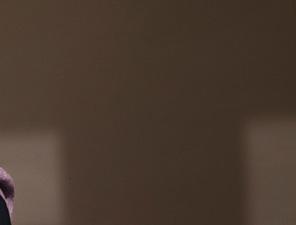


“Breaking barriers in aviation taught me that no dream is too ambitious—when women are given the right platform, they can soar beyond limits.”
—
Dr. Suaad Al Shamsi, UAE’s First Female Aircraft Engineer
and women-owned enterprises now account for 10% of the private sector. These women are not only creating businesses but also leading change in industries such as energy, healthcare, technology, and real estate. With policies ensuring equal property rights, access to finance, and corporate board representation, the UAE has built one of the most supportive environments for female entrepreneurship in the region.
In education, Emirati women are setting benchmarks: 77% enroll in higher education after secondary school, and women constitute 70% of all university graduates in the country. Notably, 56% of STEM graduates from government universities are women—many of whom go on to lead groundbreaking projects in engineering, artificial intelligence, climate science, and space technology. Leaders like HE Sarah Al Amiri, UAE Minister of State for Public Education and Advanced Technology, and innovators like Fatima Al Kaabi, the nation’s youngest inventor, exemplify this spirit of achievement.
Beyond education and the economy, Emirati women have been central to community building and cultural development. They lead non-profit initiatives, advocate for sustainability, preserve heritage, and mentor young leaders. This year’s theme, “Hand in Hand”, reflects the deep-rooted belief that progress is a collective responsibility, with women at the heart of creating resilient, inclusive communities.
As the UAE celebrates the golden jubilee of the General Women’s Union, the message is one of pride, gratitude, and determination. Pride in the strides women have made over five decades; gratitude for the leaders, institutions, and policies that paved the way; and determination to ensure that the next 50 years bring even greater opportunities, equality, and progress.
Her Highness Sheikha Fatima bint Mubarak’s vision ensures that Emirati Women’s Day is not simply a symbolic event—it is a living, breathing commitment to the empowerment of women in every sphere. As the UAE moves forward, women will remain equal partners in shaping its destiny, standing hand in hand with men to build a nation that is inclusive, ambitious, and globally admired. The 50th anniversary of the General Women’s Union (GWU) and the 10th Emirati Women’s Day are more than milestones; they represent a living narrative of progress. Over half a century, the UAE has constructed a model of women’s empowerment that blends tradition with innovation, heritage with global ambition, and community values with futuristic aspirations.
This narrative, however, was not accidental. It is deeply rooted in the vision of the late Sheikh Zayed bin Sultan Al Nahyan, the Founding Father of the UAE, who declared from the very beginning that no society can flourish without the active participa-
tion of women. His legacy, carried forward by the unwavering commitment of Her Highness Sheikha Fatima bint Mubarak, has turned these aspirations into a tangible reality. Today, Emirati women are not only participants in the national journey but also its architects, steering industries, shaping laws, and inspiring younger generations to think beyond boundaries.
At the heart of this progress lies the General Women’s Union, established in 1975 as a pioneering institution dedicated to advocating for women’s rights and opportunities. Over five decades, the GWU has been a catalyst for legislative reforms, educational initiatives, and social development programs. Its impact can be seen in the establishment of family development centers, literacy campaigns, leadership training, and skill development workshops that have reached thousands of women across all seven emirates.
The UAE’s legislative framework has also consistently evolved to ensure gender balance. Laws mandating equal pay for equal work, property rights, protection from discrimination, and maternity benefits stand as a testament to this commitment. In recent years, the government has introduced quotas for female representation on corporate boards, ensuring that the private sector mirrors the inclusivity found in government institutions.
One of the most profound markers of progress has been women’s economic participation. With more than 23,000 Emirati women registered as entrepreneurs, female-led businesses have WOMENPRENEUR
These policies are not mere formalities—they have measurable outcomes. Women now occupy senior decision-making roles across ministries, banks, energy companies, universities, and cultural institutions. Their presence has changed the tone and scope of leadership, bringing empathy, collaboration, and long-term vision to the forefront.
become central to the UAE’s economic growth. From startups developing AI solutions to enterprises in hospitality, fashion, fintech, and renewable energy, women-owned ventures are reshaping industries.
This rise is reinforced by the UAE’s supportive ecosystem. The Abu Dhabi Businesswomen Council and Dubai Business Women Council, for instance, provide mentorship, funding opportunities, and international networking platforms. Meanwhile, the UAE Central Bank and Ministry of Economy have worked to ensure that women entrepreneurs enjoy equitable access to capital, financial literacy programs, and banking support.
Perhaps the most symbolic change is the integration of women into industries once considered exclusive to men. In oil and gas, aviation, defense, and logistics, Emirati women now hold influential roles. Their visibility in these spaces sends a powerful message: there are no boundaries to what Emirati women can achieve.
Education as the Cornerstone Education remains the greatest enabler of women’s empowerment in the UAE. Decades of investment in schools, universities, and scholarships have created a pipeline of female talent across every field imaginable. Today, 77% of Emirati women enroll in higher education after secondary school, with women representing 70% of all graduates. Even more impressive, a majority of STEM graduates are female, underscoring their readiness to drive the innovation economy.
Government initiatives like “100 Women in Tech” and scholarships for international study are further bridging the gap between education and employment. Emirati women are publishing research in global journals, leading patents in clean energy and medical innovation, and becoming ambassadors of knowledge in conferences worldwide.
This educational empowerment has a ripple effect. Women serve as role models for younger generations, demonstrating that ambition and achievement
“The UAE has shown the world that empowering women is not a trend—it is a national priority that fuels progress and unity.”
— H.E. Denitsa Dimitrova, Ambassador of Bulgaria to the UAE
are not confined by gender. By prioritizing knowledge, the UAE has positioned its women as global competitors and thought leaders.
Beyond politics and economics, Emirati women have also emerged as custodians of cultural identity. They lead initiatives in heritage preservation, traditional crafts, literature, and performing arts. Their work ensures that rapid modernization does not overshadow the nation’s roots. From poetry that reflects Emirati values to museums curated by female directors, women continue to shape how the UAE presents itself to the world.
Community leadership is another pillar of their influence. Emirati women are active in NGOs, volunteering, environmental movements, and philanthropic projects. They are central to campaigns on sustainability, climate action, youth mentoring, and social inclusion. This spirit of service reinforces the year’s theme—“Hand in Hand”—as women and men together contribute to stronger, more compassionate communities.
The UAE’s achievements in women’s empowerment have gained international recognition. The nation consistently ranks among the highest in the region for gender balance, and global organizations often cite its progress as a model for others. Women’s leadership in diplomacy further enhances the
UAE’s soft power. Female ambassadors represent the country across continents, advocating for peace, cultural exchange, and international cooperation.
Emirati women also serve in international organizations such as the UN, WHO, and World Bank, shaping global policy while amplifying the UAE’s voice on the world stage. Their presence not only strengthens national pride but also signals to the global community that the UAE is committed to equality as a foundation for development.
As the UAE reflects on five decades of achievements, attention now turns to the next 50 years. The ambition is not merely to sustain progress but to accelerate it. Emerging sectors such as AI, renewable energy, biotechnology, and space exploration will define the UAE’s future economy, and women are already taking leading roles in these fields.
Yet, challenges remain. Bridging the gap between education and workforce participation, ensuring equitable access to venture capital, and maintaining representation in rapidly evolving industries are all areas that require sustained effort. The digital revolution, while opening new opportunities, also brings questions of inclusivity, reskilling, and adapting to technological change.
Addressing these challenges requires not only policy but also mindset shifts—continued emphasis on mentorship, allyship, and global partnerships. With platforms like the Gender Balance Council and initiatives driven by the GWU, the UAE is well-positioned to turn challenges into opportunities.

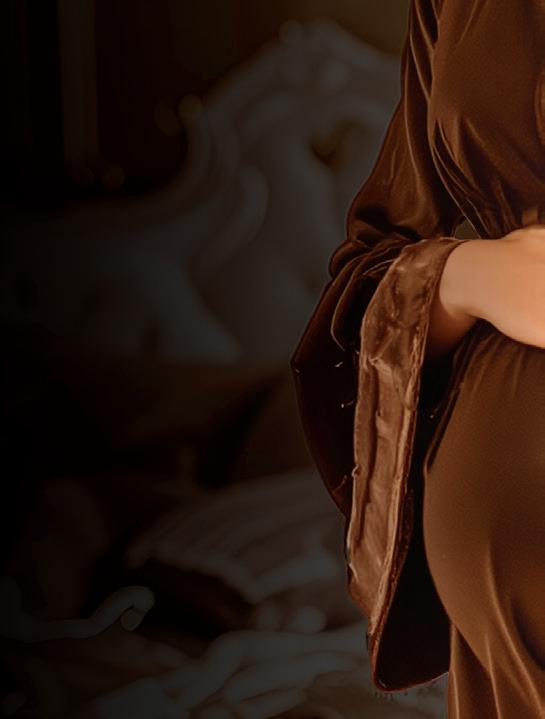





































































































































































































































































































For centuries, Oman has been known as a land of seafarers, frankincense traders, and desert kingdoms. Its rugged mountains, pristine beaches, and rich cultural heritage have remained largely untouched by the mass tourism that has transformed much of the Gulf. But today, a new story is unfolding.
The Sultanate is turning its greatest treasures — its heritage, culture, and landscapes — into engines of economic growth. With fiscal deficits weighing on the economy for more than five years, Oman is now looking to tourism not only as a source of revenue but as a pathway to entrepreneurship, job creation, and long-term sustainability.
The Ministry of Heritage and Tourism (MHT) has taken on the ambitious task of positioning Oman’s UNESCO-recognised heritage sites as global attractions, from the majestic Bahla Fort to the archaeological wonders of Bat and Qalhat, the life-giving Aflaj irrigation systems, and the world-renowned Land of Frankincense in Salalah.
The Land of Frankincense – Oman’s Tourism Jewel
In the lush Dhofar region, the Land of Frankincense stands as a symbol of Oman’s deep connection to global trade and culture. Once the hub of the ancient frankincense route that stretched from southern Arabia to Rome, this UNESCO-listed heritage site is now at the heart of Oman’s tourism vision.
Salalah, the capital of Dhofar, is blessed with something unique in the Arabian Peninsula: the Khareef season, when monsoon rains transform the desert into a green wonderland. Combined with its coastal charm, Salalah offers a powerful blend of history and nature — an ideal backdrop for tourism development. And the investments are rolling in. The Abu Dhabi Fund for Development (ADFD) has launched a Dh764.5 million (OMR 80 million) Integrated Tourism Complex, spanning more than 2.5 million square metres. The first phase alone will deliver a luxury beachfront resort with 120 rooms and private chalets, a marina, and revitalised waterfront spaces.
A Broader Vision – Oman’s National Tourism Strategy
This project is not a standalone initiative. It fits neatly into Oman Vision 2040, the Sultanate’s economic diversifica-















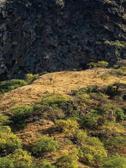















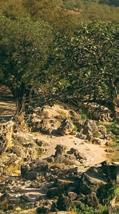





























































































As MHT officials often note, “Heritage is not just about the past; it is the foundation of our future economy.”












































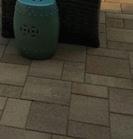
























































































































tion roadmap. Tourism is one of the pillars of this vision, alongside logistics, manufacturing, and knowledge-based industries.
By 2040, Oman hopes to welcome millions of international visitors annually, positioning itself as a unique alternative to glitzy Gulf destinations. Unlike Dubai’s skyscrapers or Qatar’s modernist skyline, Oman is betting on authenticity — heritage sites, cultural tourism, eco-adventures, and traditional crafts.
This approach has two purposes:
• Job Creation: By building an ecosystem around tourism, Oman aims to generate employment for its young and growing population.
• Entrepreneurship: From tour guides to boutique hoteliers, local artisans to tech-driven travel startups, tourism provides fertile ground for small and medium enterprises (SMEs).
While Oman has long preserved its culture, it has only recently begun to monetise heritage. The MHT’s efforts to promote UNESCO sites mark a shift in mindset: heritage is no longer just for cultural pride, it is also an economic asset.
Take Bahla Fort, a massive fortress that dates back to the 13th century. Once a military stronghold, today it is being repositioned as a tourist magnet with guided tours, cultural festivals, and craft markets. Similarly, the Aflaj irrigation systems, some of which still function today, are not just marvels of ancient engineering — they are showcases of








































































sustainability that resonate with modern eco-tourists. By investing in infrastructure around these sites, Oman is creating opportunities for local entrepreneurs: cafés at heritage trails, guided cultural walks, heritage-themed resorts, and even digital platforms that bring Omani history to the world.
The potential of tourism as an entrepreneurial engine cannot be overstated. Globally, tourism accounts for 1 in 10 jobs, and in countries with rich heritage and natural resources, it has served as a catalyst for small business growth.
In Oman, the opportunities are equally diverse:
• Hospitality SMEs: Boutique hotels, homestays, eco-lodges.
• Creative Industries: Handicrafts, textiles, frankincense-based wellness products.
• Food and Beverage: Omani cuisine experiences, fusion restaurants, coastal seafood concepts.
• Adventure Tourism: Hiking, diving, mountain trekking, desert camping.
• Tech Solutions: Online booking apps, AR-based heritage tours, and ride-sharing tailored for tourists.
For young Omanis, many of whom face limited opportunities in traditional public-sector jobs, tourism offers a stage to innovate.





































































The ADFD-backed Integrated Tourism Complex in Salalah is more than a luxury project; it signals a regional partnership in reshaping tourism across the Gulf. With the UAE’s track record in tourism development and Oman’s unique cultural assets, the collaboration has the potential to redefine the regional tourism map.
This synergy extends beyond resorts. From cross-border travel packages linking Dubai and Salalah, to shared investment in tourism infrastructure, the UAE-Oman partnership could create a tourism corridor that benefits both economies while boosting job creation on both sides of the border.
One of Oman’s greatest challenges is balancing modern tourism development with its deep-rooted cultural preservation. Unlike destinations that have sacrificed heritage for rapid growth, Oman has been deliberate in ensuring that investments align with its cultural identity. This is evident in its emphasis on sustainable tourism. Projects like the Salalah complex incorporate eco-friendly infrastructure, while heritage sites are being upgraded with sensitivity to their historical character. The goal is clear: attract visitors without eroding the traditions that make Oman unique.
Salalah’s transformation into a global destination will be a test case for Oman’s broader tourism ambitions. If successful, it could become a model replicated across the Sultanate






































































— from Muscat’s forts and museums to Nizwa’s souqs and Sur’s shipyards.
Already, the Khareef season brings tens of thousands of regional visitors. With the new integrated resort, improved infrastructure, and global marketing, Salalah could emerge as a year-round destination attracting Europeans, Asians, and adventure travelers.
For locals, this means more than jobs — it means business ownership, from transport services to cultural performances. For Oman’s youth, it means a chance to shape the country’s narrative through innovation and entrepreneurship.
Despite the optimism, hurdles remain. Oman faces: Infrastructure Gaps: Beyond Muscat and Salalah, many regions lack tourism-ready facilities.
Skill Development: Preparing Omanis for hospitality, management, and entrepreneurship roles requires targeted training.
Competition: The Gulf is crowded with tourism giants. Oman must differentiate itself through authenticity and heritage-driven offerings.
Sustainability: Rapid growth could strain Oman’s fragile ecosystems if not managed carefully.
These challenges underscore the importance of a phased, sustainable approach — building capacity step by step while ensuring long-term cultural and environmental preservation.

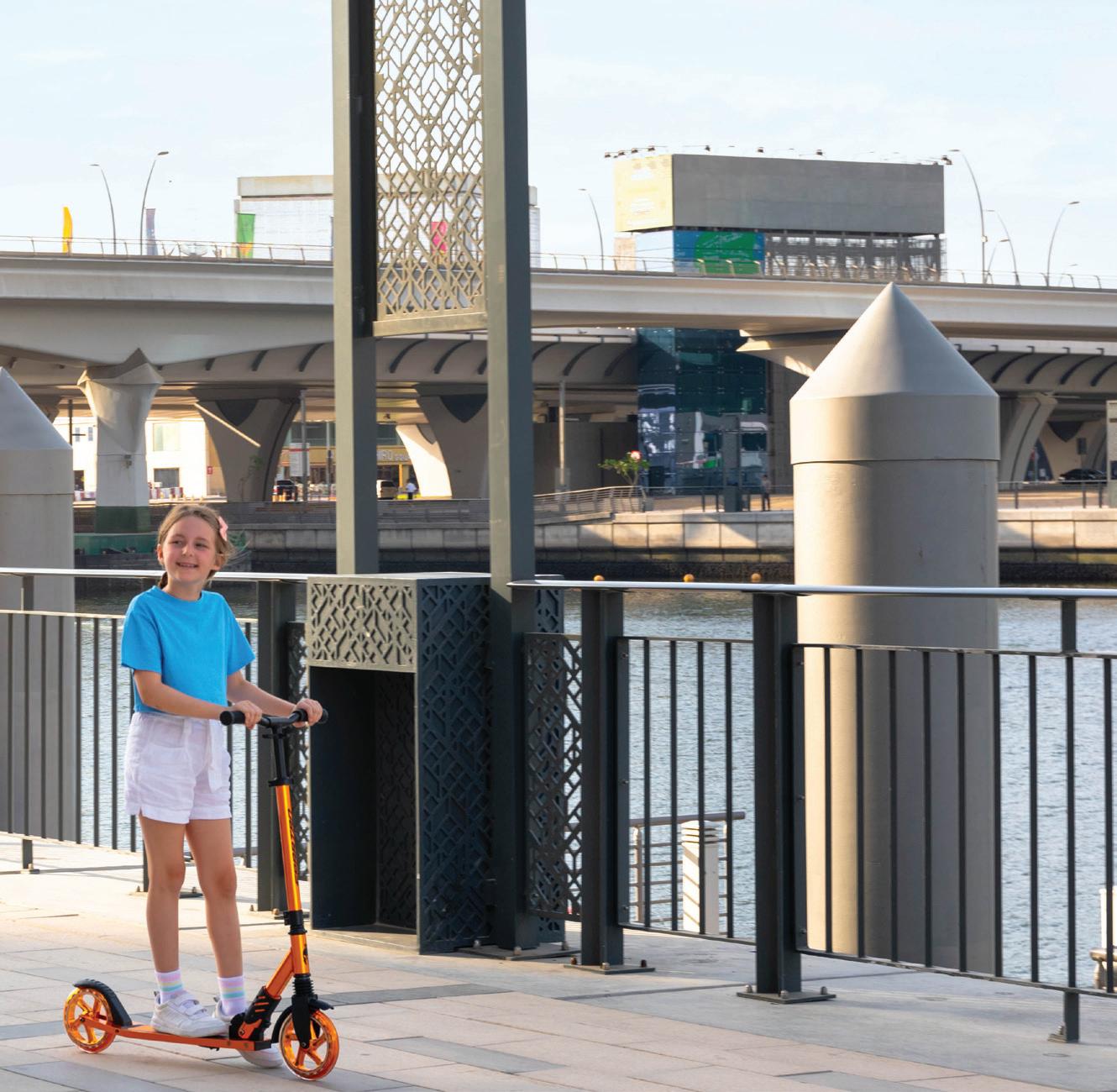
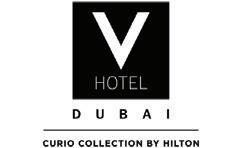





Al Habtoor City, Sheikh Zayed Road, Dubai, United Arab Emirates Tel: +971 4 435 5555 ~ reservations@habtoorpalace.com www.habtoorpalace.com ~ @alhabtoorpalace

